Hello and welcome to Work Week, the podcast where we tackle one big question about the rapidly evolving workplace, explore what the research says about the issue, and explain what it all means for you. I’m Dr. Gabby Burlacu, Senior Manager with the Upwork Research Institute.
Or rather, what you’re hearing today are my thoughts and ideas, guided by insights from the Research Institute, and brought to you by a digital proxy of my voice that was created by our team with the help of AI. In this week’s episode, we’re going to return to the Future Workforce Index report published by The Upwork Research Institute just last week. So if you missed last week’s episode, I encourage you to pause now and catch up so you don’t miss some important context.
This week, we’re going to look at data from the Index to challenge you to think more deeply about what humans and AI can create together.
In last week’s episode, we discussed how the rise of the freelance knowledge worker—some 28% of knowledge workers today—is challenging organizations to break convention and move away from traditional hiring approaches to access the highly skilled talent they need. This week we are asking the question: What’s behind the shift to independent skilled work, and does that shift have a larger meaning?
Our research not only uncovered how and why many skilled professionals choose to work independently, but also dug deeply into their experiences and thought processes when it comes to work. And we learned some truly interesting things. First, we learned these workers are not a homogeneous group. Rather, they are a highly diverse set of people who are building independent careers in a variety of different ways. Specifically, we found four modes of independent work that skilled independent professionals align with as they manage their workload and access opportunities.
The first mode we identified was the Business Owner. This is a freelancer who approaches their workload like running a business. They often manage a portfolio of multiple clients and projects at once.
The second mode we noted was the Agency freelancer. This person teams up with other independent professionals to broaden the scope of their services.
The third mode was the Managed Services freelancer. These freelancers specialize in providing functional managed services to organizations through an intermediary, creating a blend of stability and flexibility.
And finally, we identified the AI-Enabled freelancer, who positions themselves as a package deal with AI-enabled tools embedded into their service delivery. This mode in particular is poised to grow, with more freelancers saying they plan to work this way in the coming five years.
These aren’t mutually exclusive categories, and many freelancers navigate their business through multiple modes. At the same time, a small subset of these freelancers are actually full-time employees as well. Skilled moonlighters, or people who provide skilled services or consulting alongside their full-time work, generate an average of one third of their income through independent opportunities.
Each of these models offers a unique way for skilled professionals to navigate the workforce while maintaining autonomy and career control. And when we look across all these different modes of working, we see some interesting characteristics emerge. For one thing, skilled freelancers as a whole are highly educated, nearly twice as likely to have a post-graduate degree as their full-time employee counterparts. They also have strong specialization and expertise—such as AI development, marketing, and creative design.
So why are knowledge workers choosing to take the reins of their own career, leaving behind the supposed stability offered by full-time employment? What we’re finding is that traditional employment models are under pressure, and freelancers are finding independent work to be a reliable path to gaining control, financial stability, and career growth. This isn’t just their imagination. Our research suggests some very good reasons for professionals to consider freelance.
For example, skilled freelancers tend to earn more than full-time employees. The median 2024 earnings for freelancers was $85,000, surpassing their full-time employee counterparts by six and a quarter percent. We also found 78% of skilled freelancers to be satisfied with their pay levels—a sentiment shared by only 64% of full-time employees.
Freelancers also found that their skills were more in demand. Fully 88% of skilled freelancers believe their skills are more in-demand than ever, compared to just 75% of full-time employees. And whereas 82% of freelancers say there are more professional opportunities available to them today versus one year ago, only 63% of full-time knowledge workers say the same.
And that’s because these independent professionals have the right skills for a changing world of work. Our data suggests that independent skilled workers are more proficient not only in using AI tools, but also in the human skillsets needed in an AI-empowered future. They are stronger in critical thinking, problem solving, collaborating, and being creative than their full-time employee peers.
And this illuminates the fundamental problem with traditional talent models today: they are relatively limited, and freelancers are proof of what’s possible without those limits.
But that begs a question: what do we mean by limited?
For starters, we can look at the way people learn and where they access continuing education. While full-time employees understandably rely more on formal organizational training for continuing education, freelancers have a wider variety of learning sources available to them. When it comes to AI for instance, they are more likely to be hands-on and self-taught, and to experiment. Our research found that nearly one in three C-level executives are uncomfortable with workers looking outside the company’s structure to pursue development on key topics like AI. But research has consistently shown that traditional organizational learning and development is a poor fit for something as fast-moving and nuanced as AI.
Another challenge limiting traditional talent models is the relative sense of control people want over their work experience. 83% of skilled freelancers say their work contributes positively to their mental, emotional, and physical well-being. Conversely, previous Upwork Research Institute research has found that 71% of full-time employees are burned out and overwhelmed by their workload. Having a sense of control, flexibility, and ownership are key motivators driving people to freelance, and so is the freedom to pursue work that is personally meaningful or interesting.
As we shared last week, the number of skilled professionals choosing to work independently is probably going to grow, with 36% of full-time workers now saying “the traditional work model may not be working for me any more.”
And on that note, I want to wrap this episode as we always do, by giving you an actionable insight and a reflection to consider to help you navigate this evolution in skilled work.
For business leaders, we talked last week about the importance of leveraging this growing independent talent pool. But this week, let’s also consider how the practices within our organizations might be limiting people—whoever they are—from reaching their full potential. Are people limited in terms of how or what they’re enabled to learn? Are they barred from trying new tools or technologies that they could have access to and that could help them? Are they forced to adapt to workflows or processes that are inefficient, when a better way is possible? Identify one factor within the workplace that may be limiting your workers, because creating an environment where people can learn, thrive, and perform is fundamental to having skilled, engaged talent in the future of work.
For skilled workers, it is becoming increasingly clear that there’s more than one path to connect to growth and earning opportunities. If you are already working as a freelancer, consider the ways you can articulate to potential clients how you’ve channeled the freedom to learn, grow, and discover into better service delivery—enabling you to better meet their needs. If you work full-time or in a more traditional work model, consider whether there are parts of your own work experience that make you feel limited in some way. As you identify them, create an action plan for how you might address them. And if it’s related to an organizational policy or practice, consider sharing them with your managers so you can start to inspire change and create a work environment that unlocks and amplifies your potential.
For both business leaders and skilled workers, I want to leave you with the same reflection question. The World Economic Forum reports that, in the next 5 years, 39% of worker skills will become transformed or outdated. The workforce is changing, and that can frankly be scary. But your response to these changes doesn’t have to happen all at once. Rather, your reskilling and upskilling journey can be incremental. So the question I want to leave you with is this: What one new skill can you commit to learning and practicing in the next three months?
Thank you for joining me on today’s episode of Work Week. I’m Gabby Burlacu, and if you found this conversation insightful, be sure to subscribe and share this episode with a friend. The future of work is changing fast—let’s navigate it together.







.png)
.png)
.png)
.png)
.png)
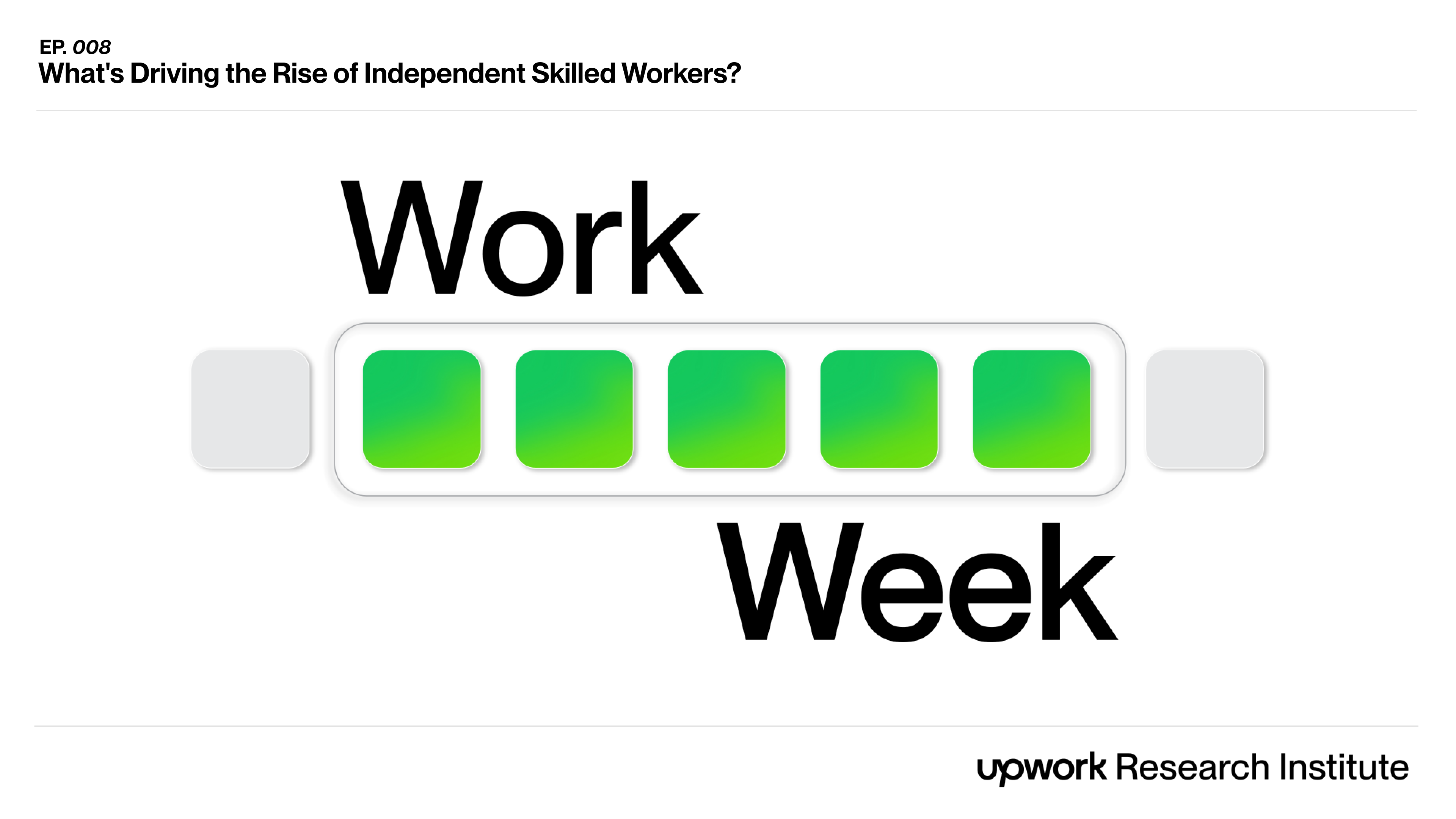


.png)

-p-500.jpg.png)

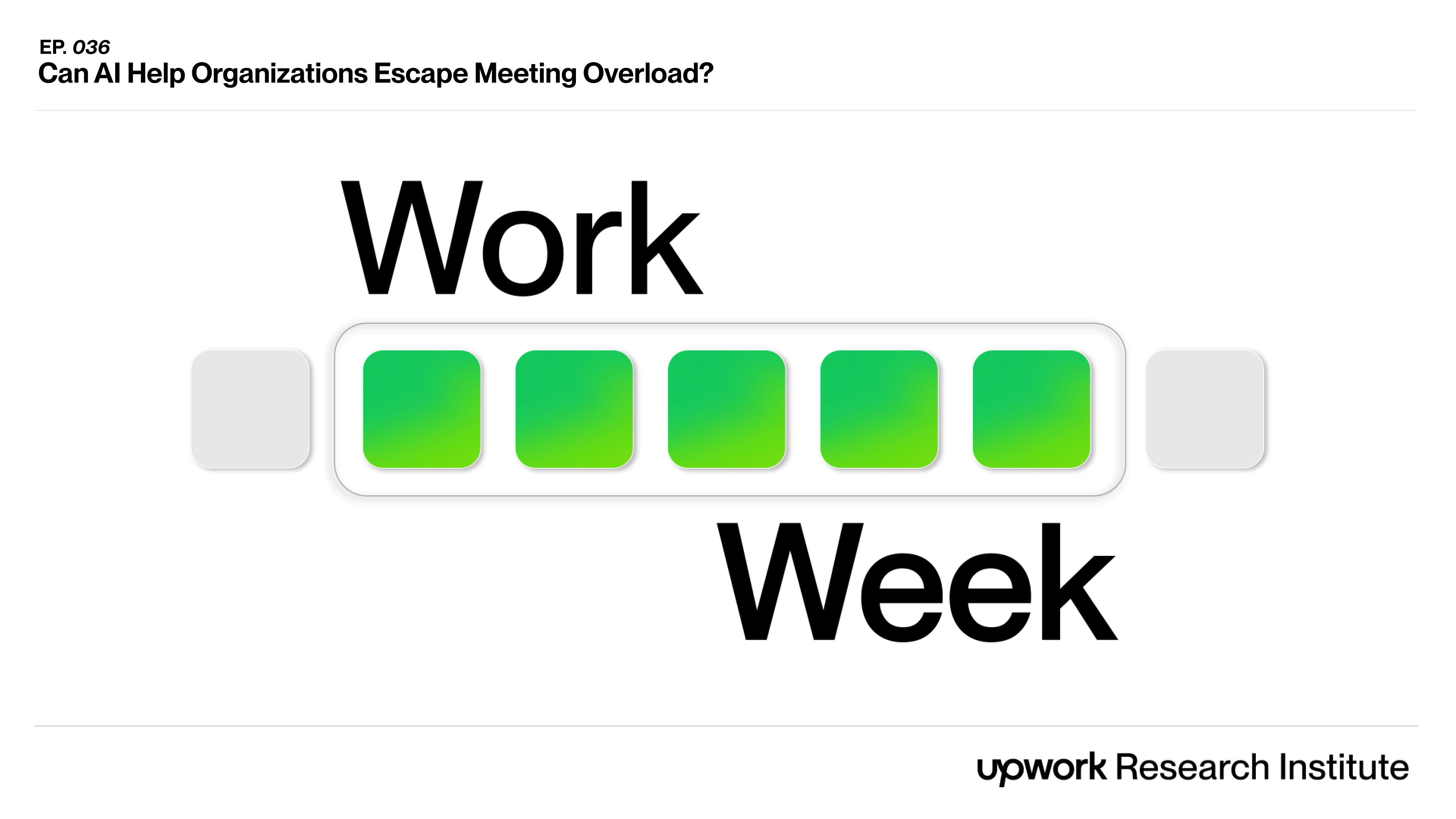

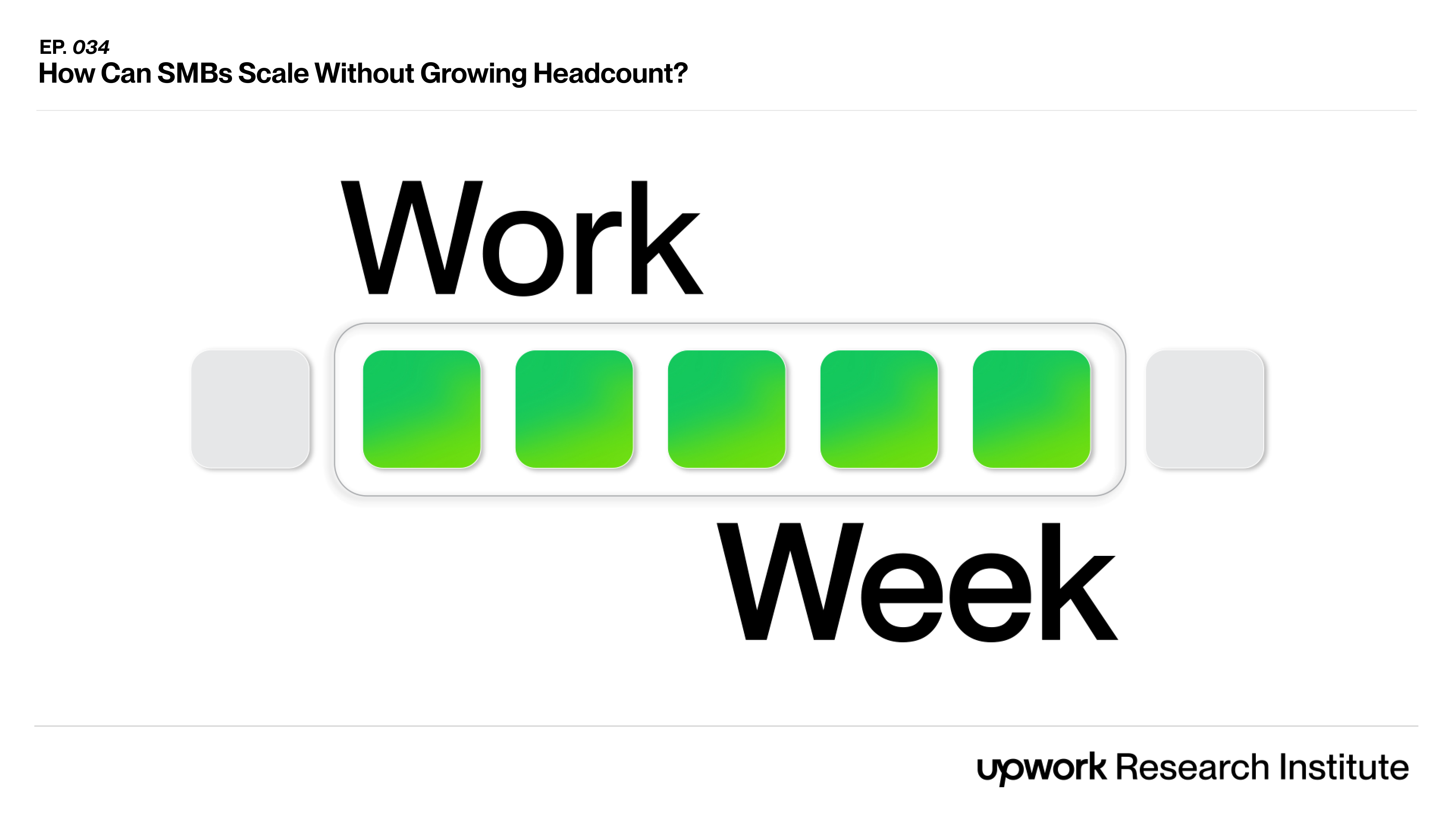
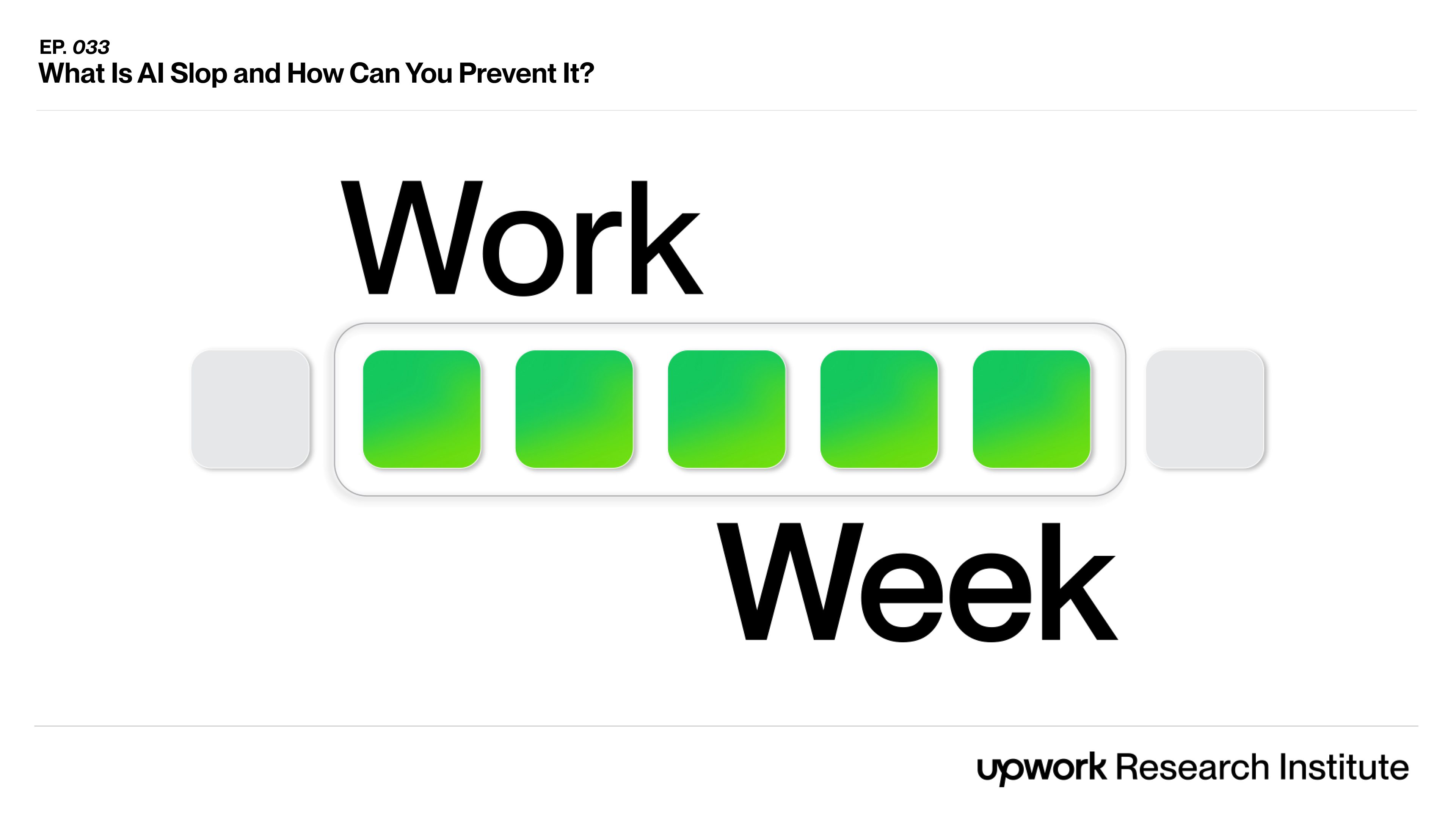
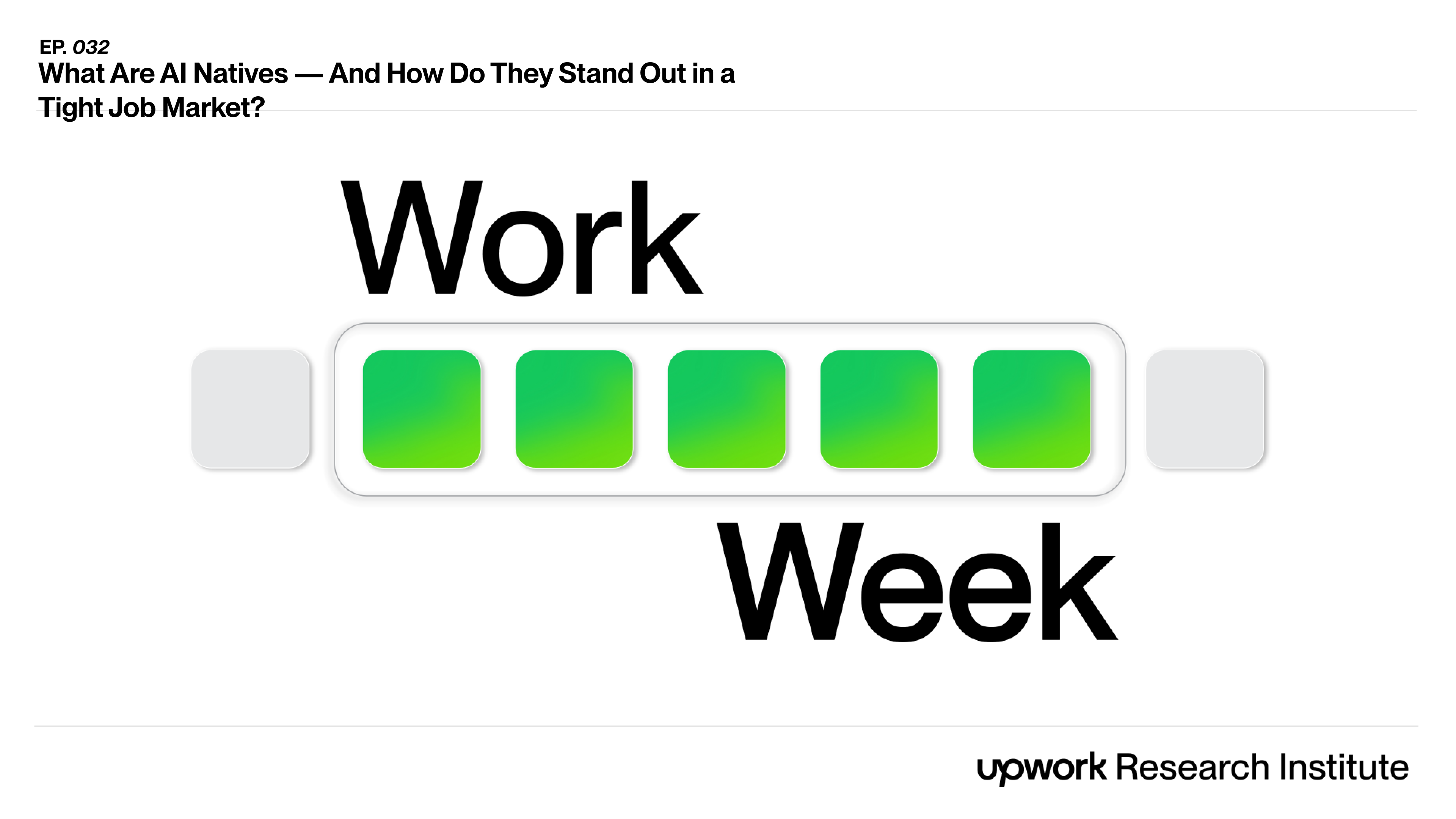
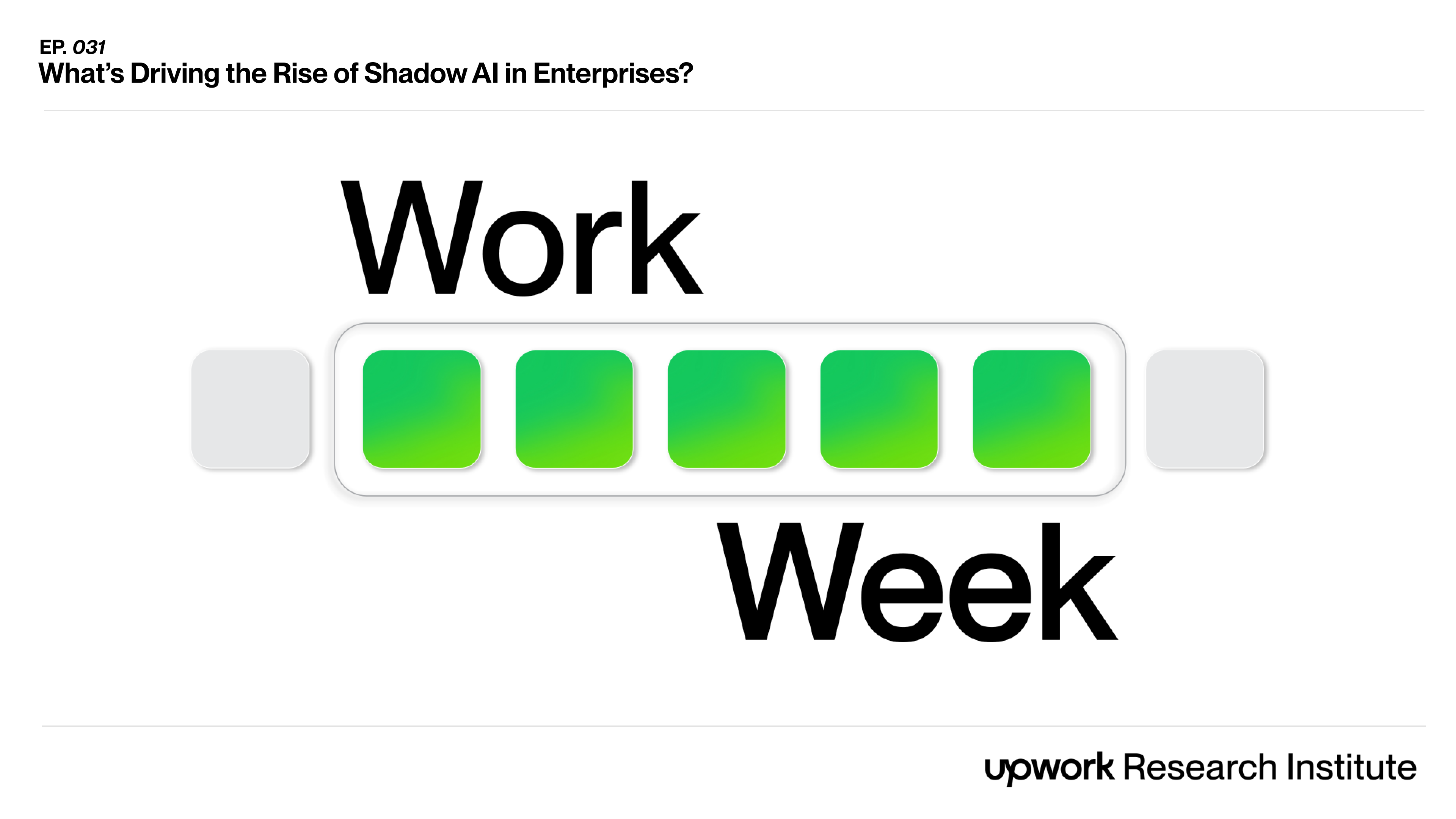
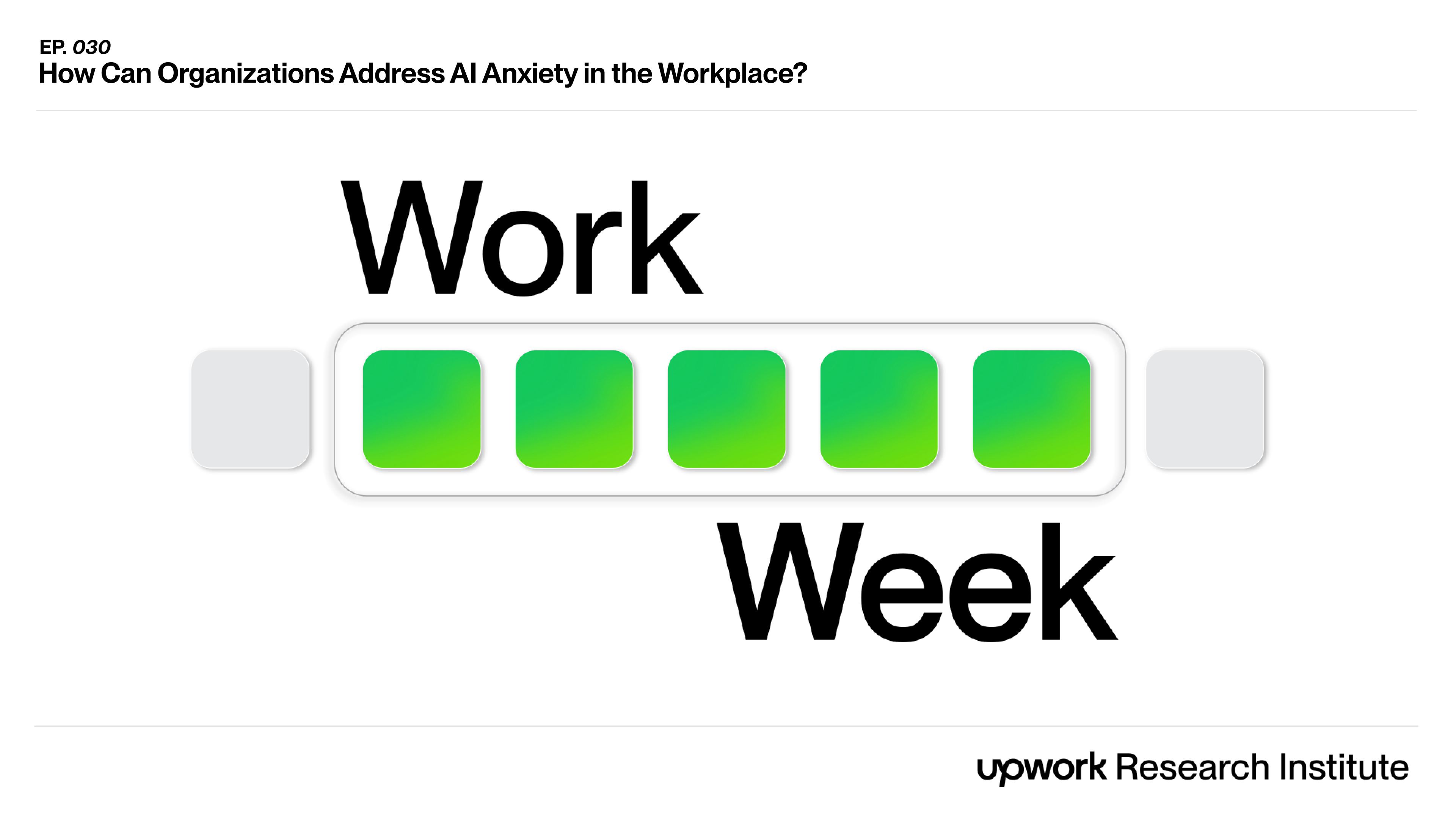
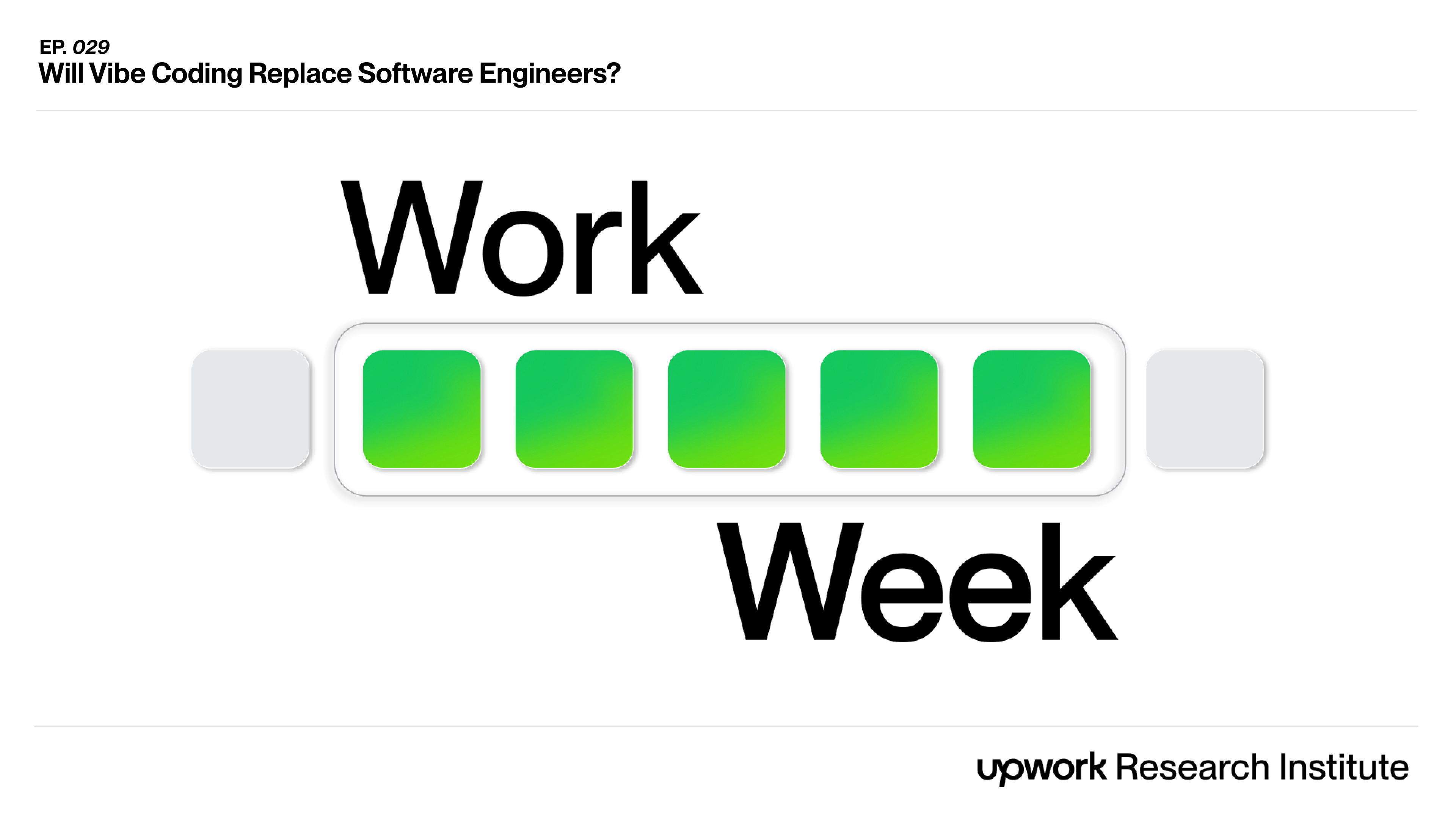
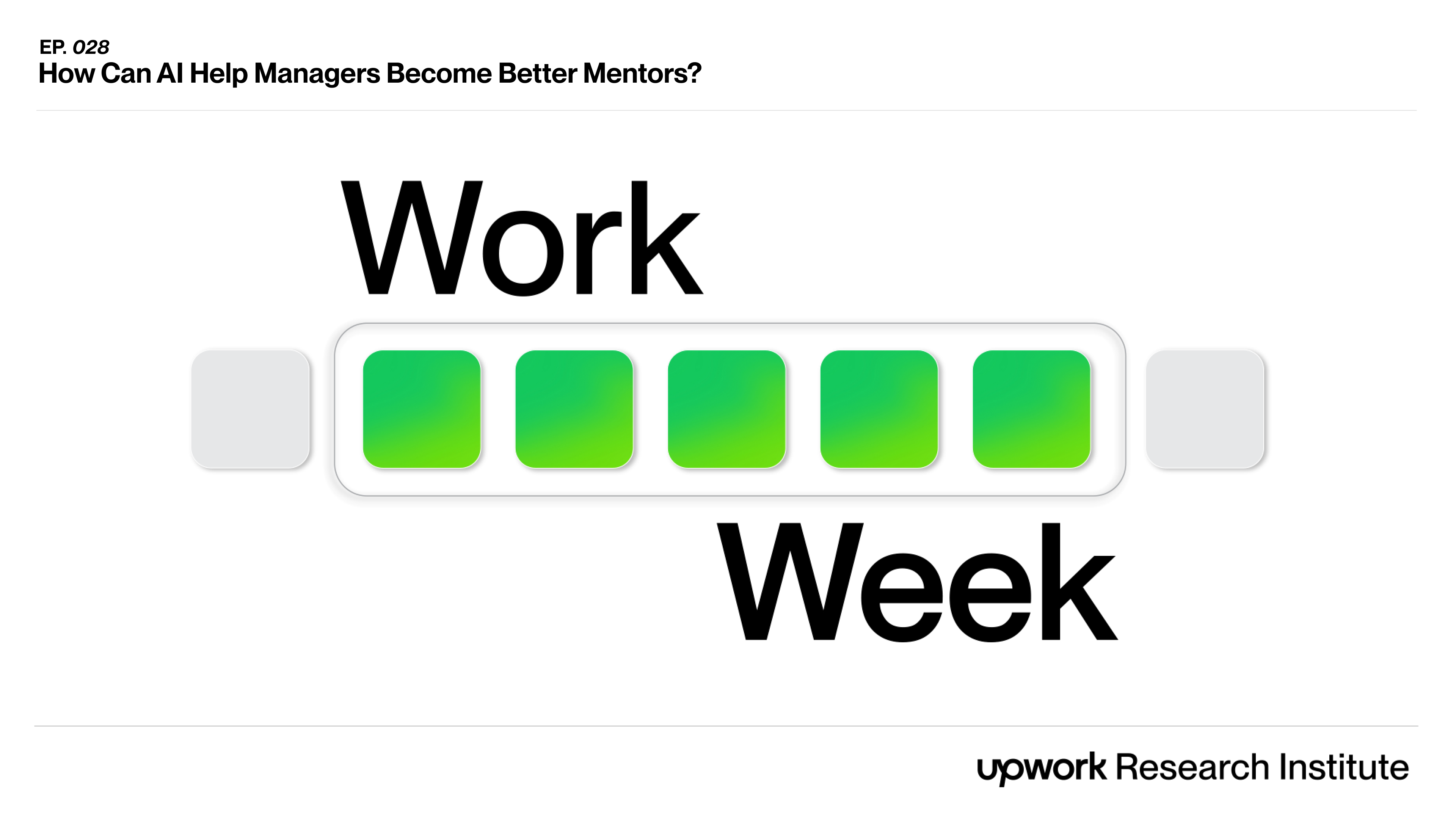

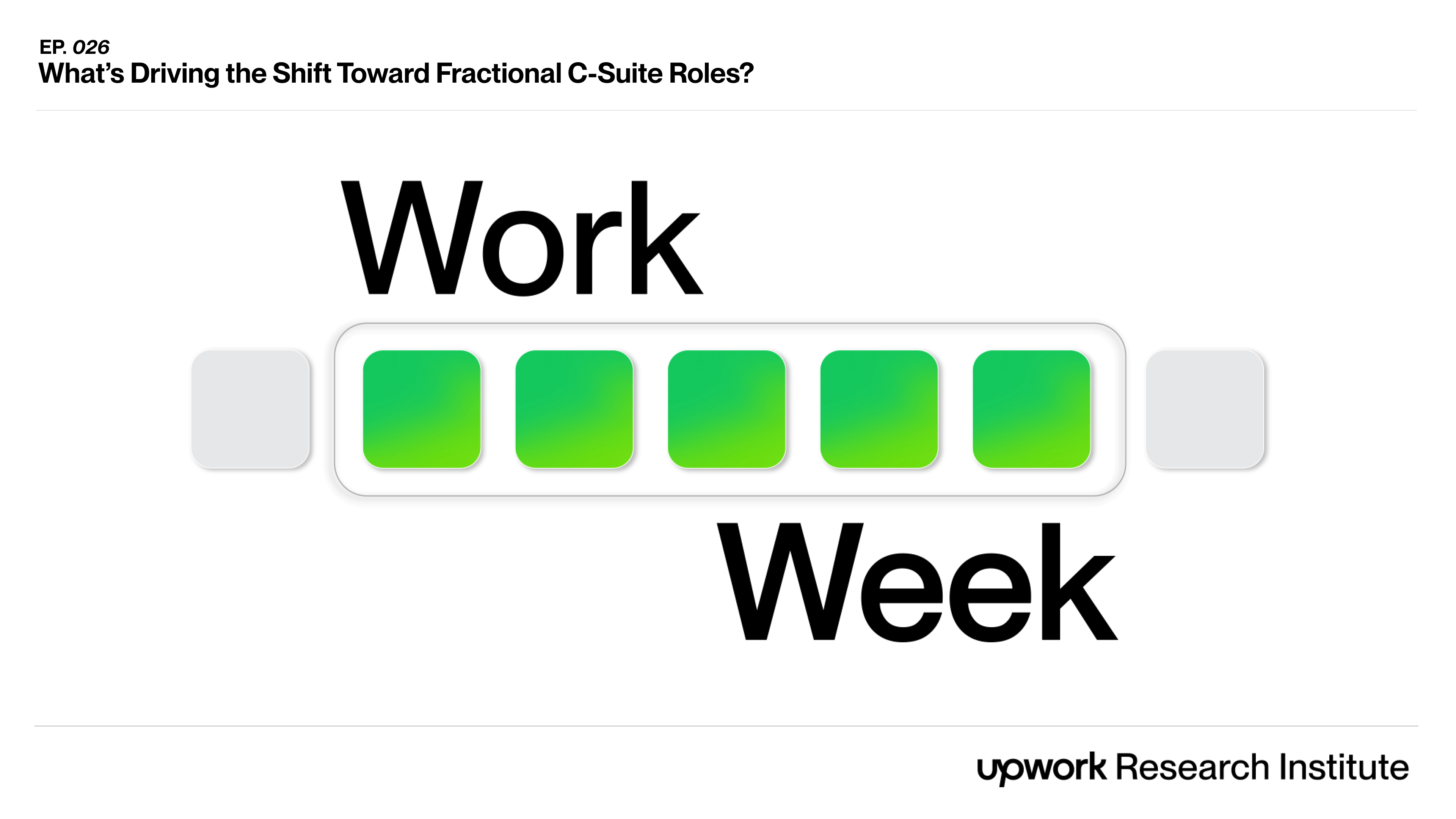
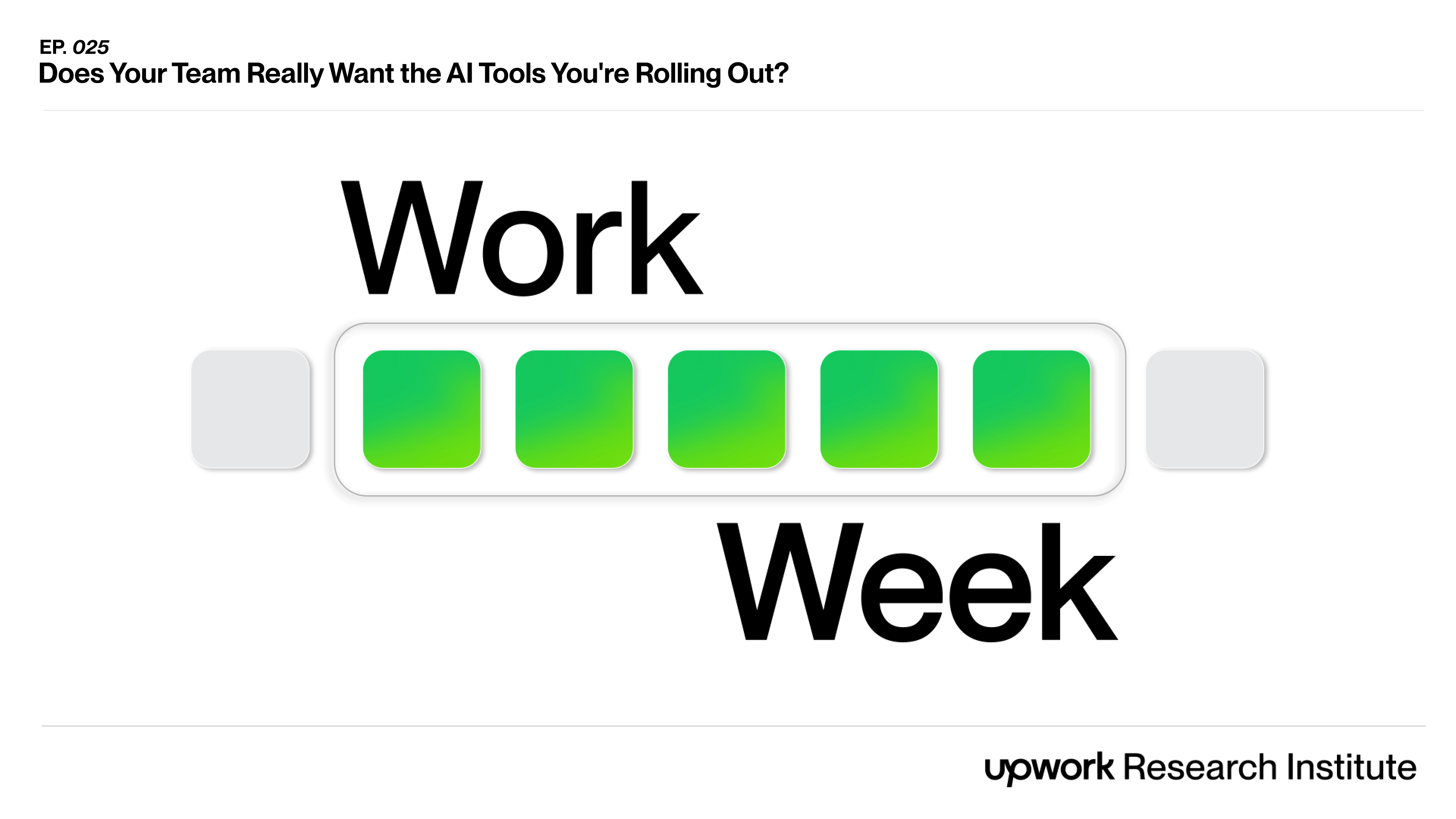
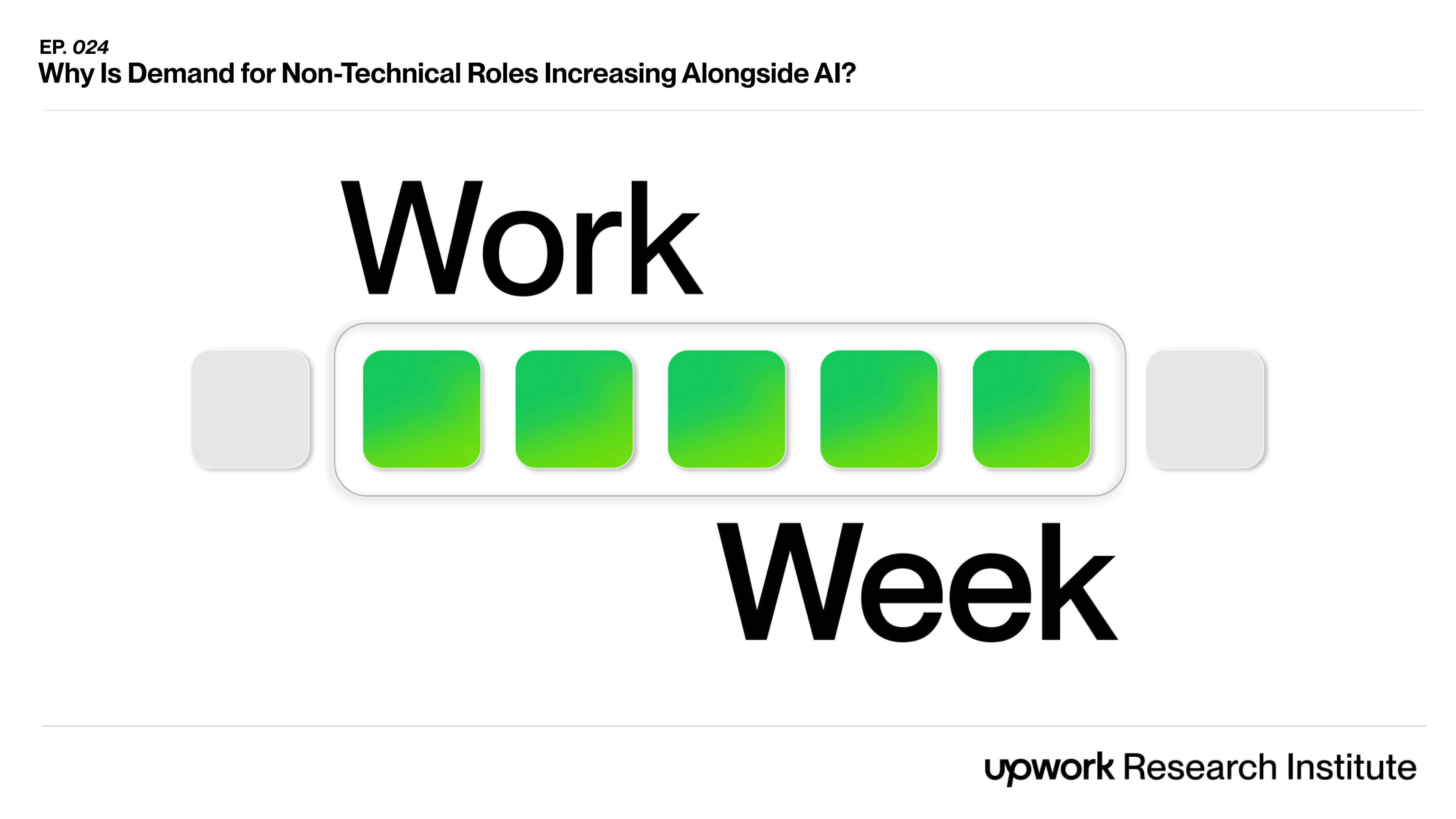
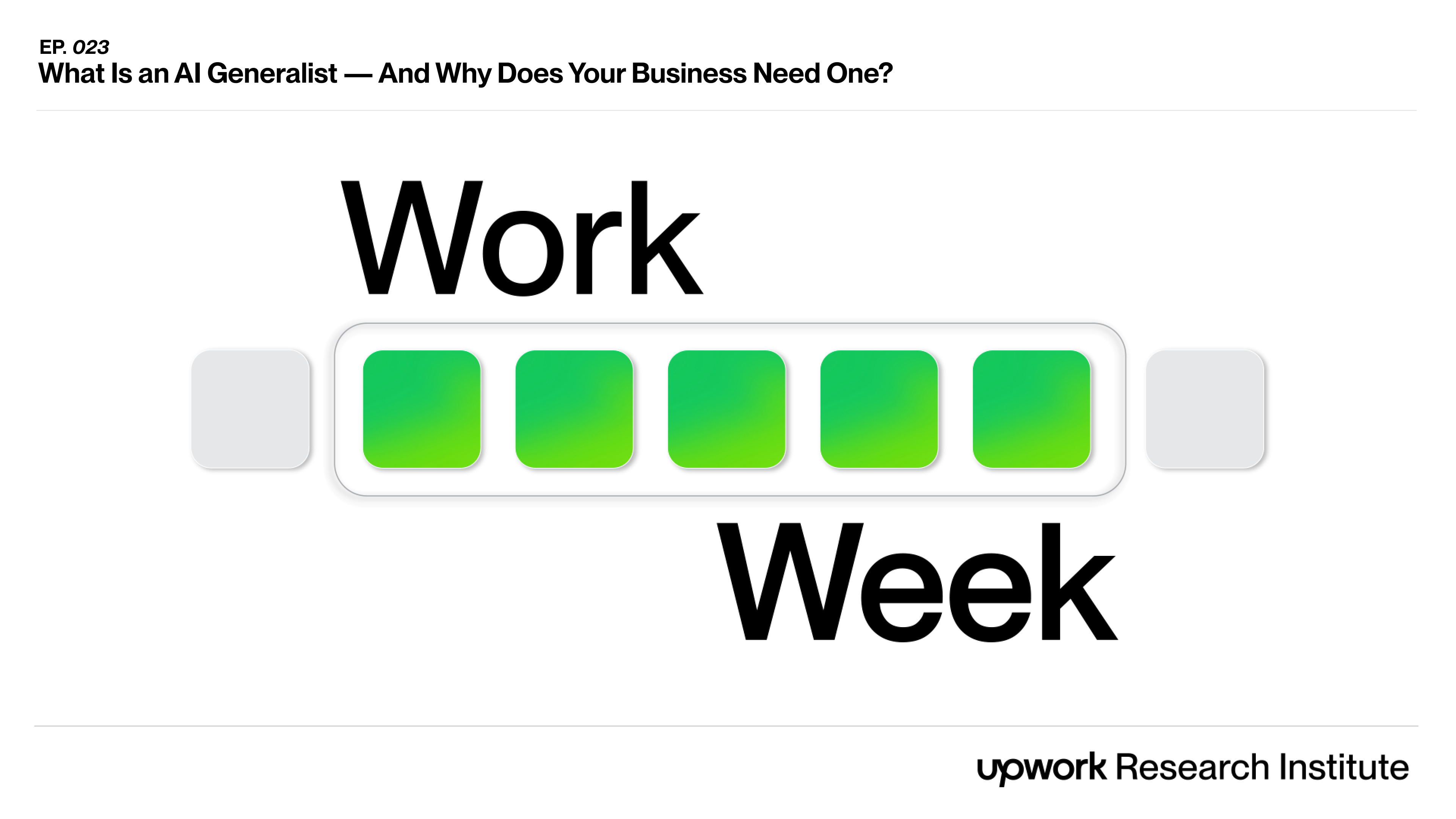
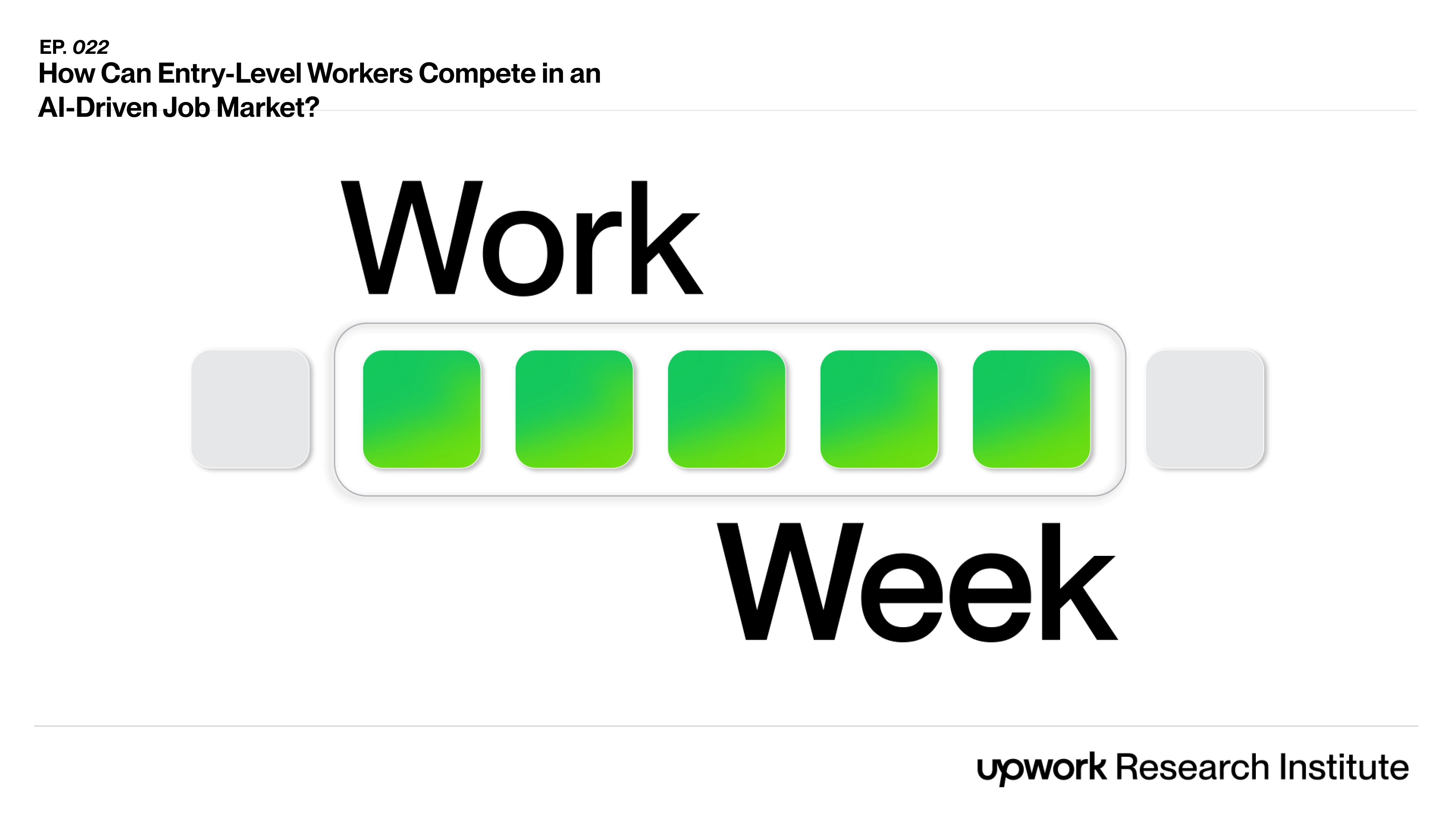

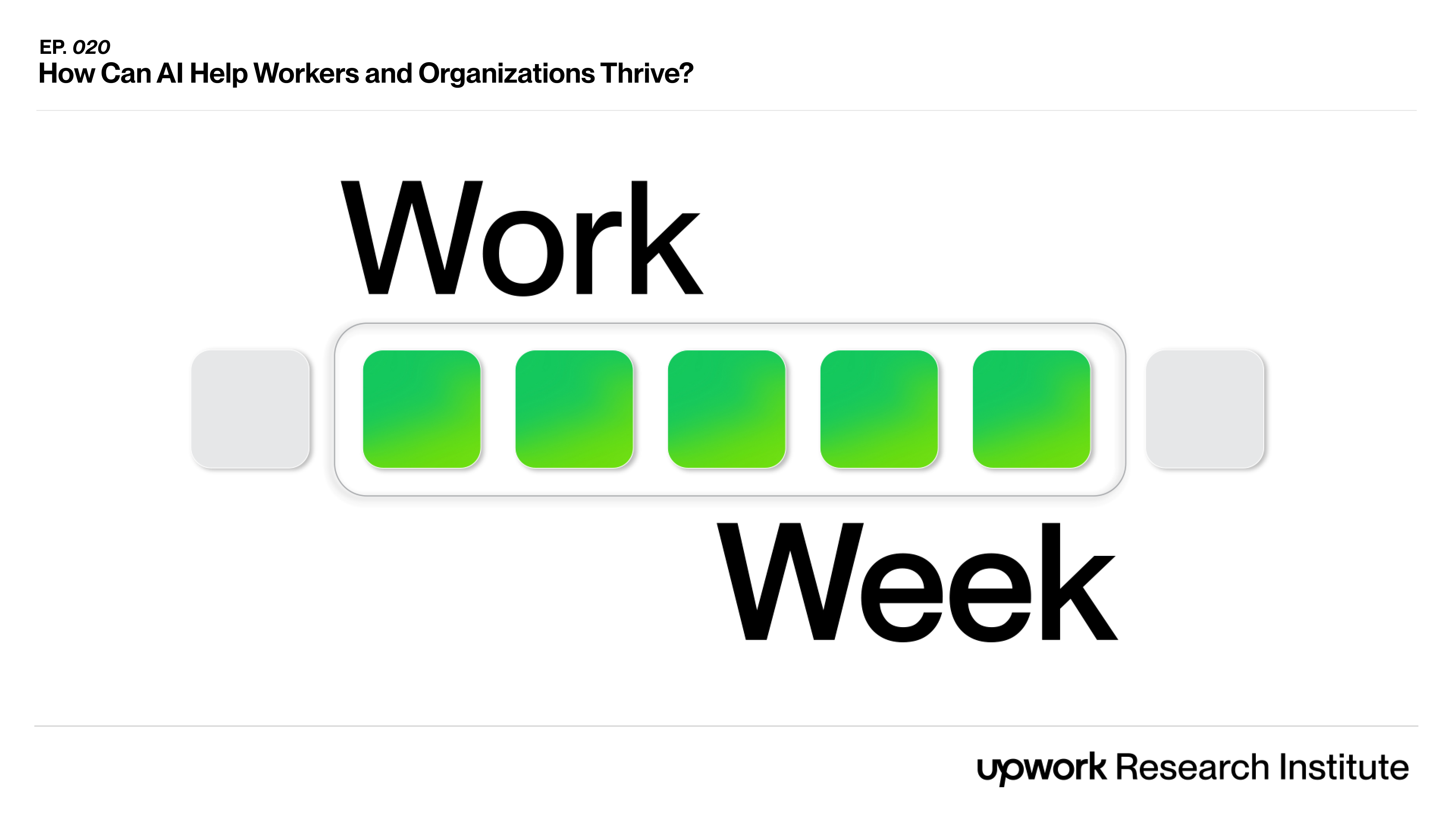
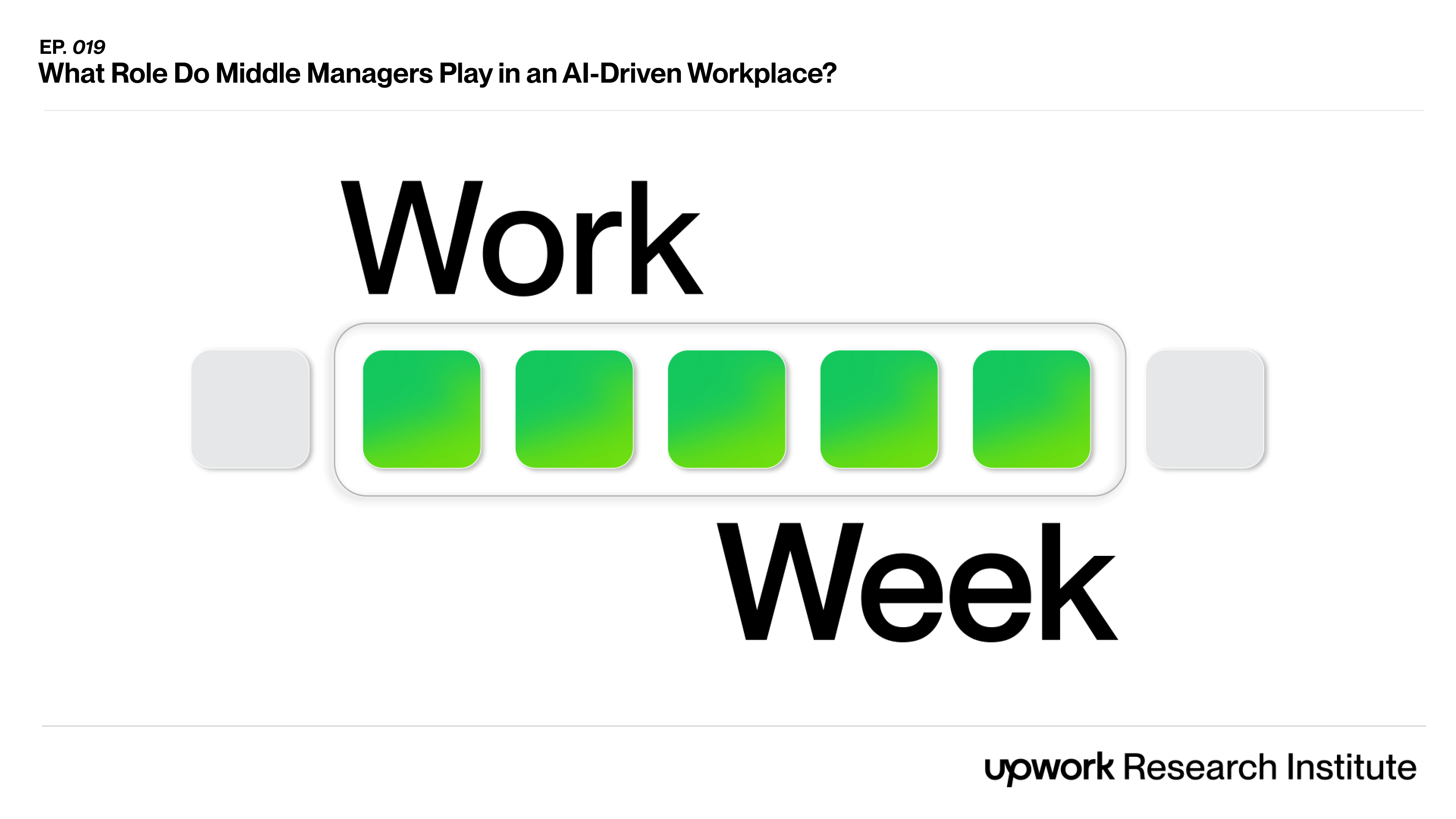
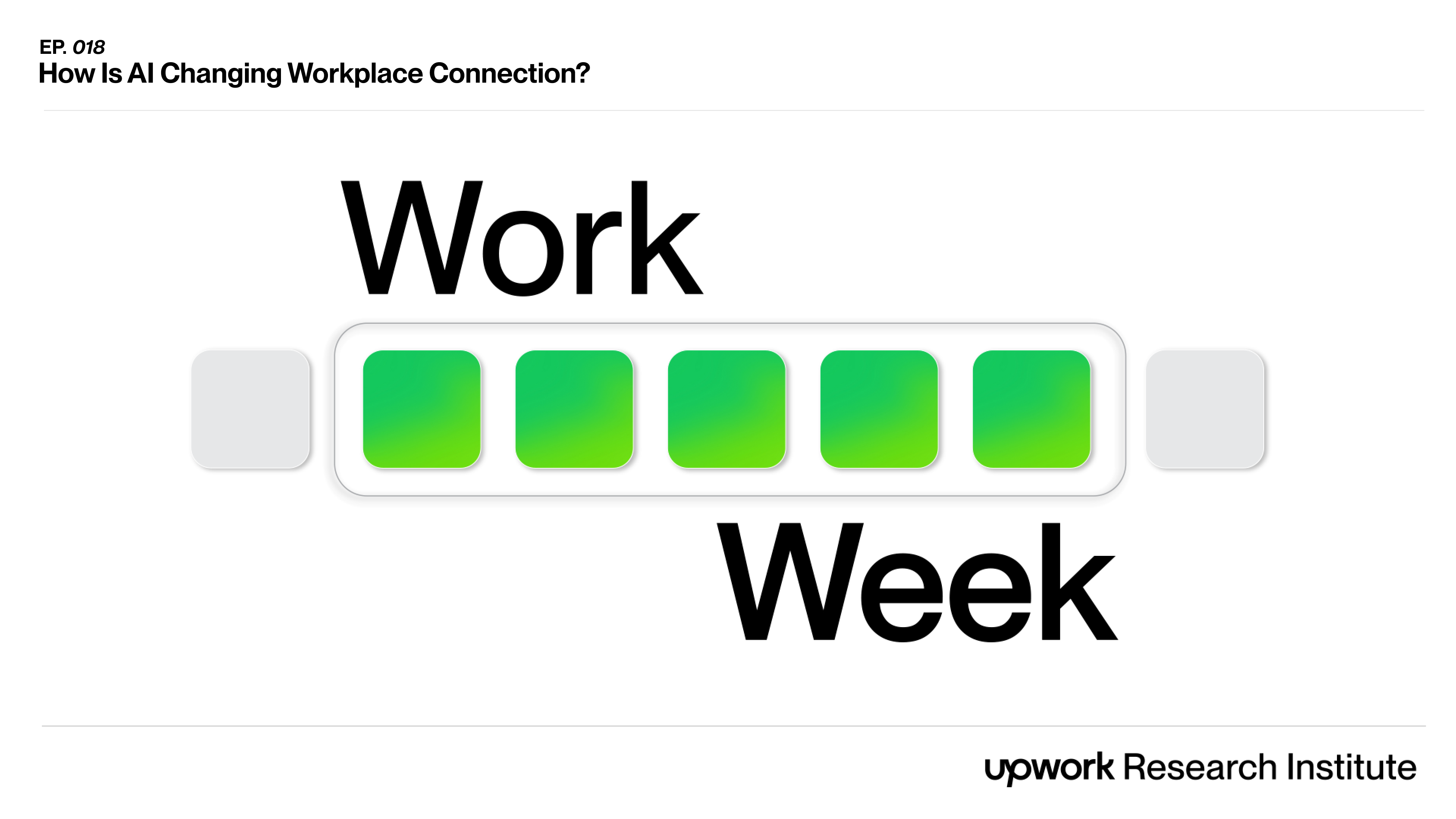

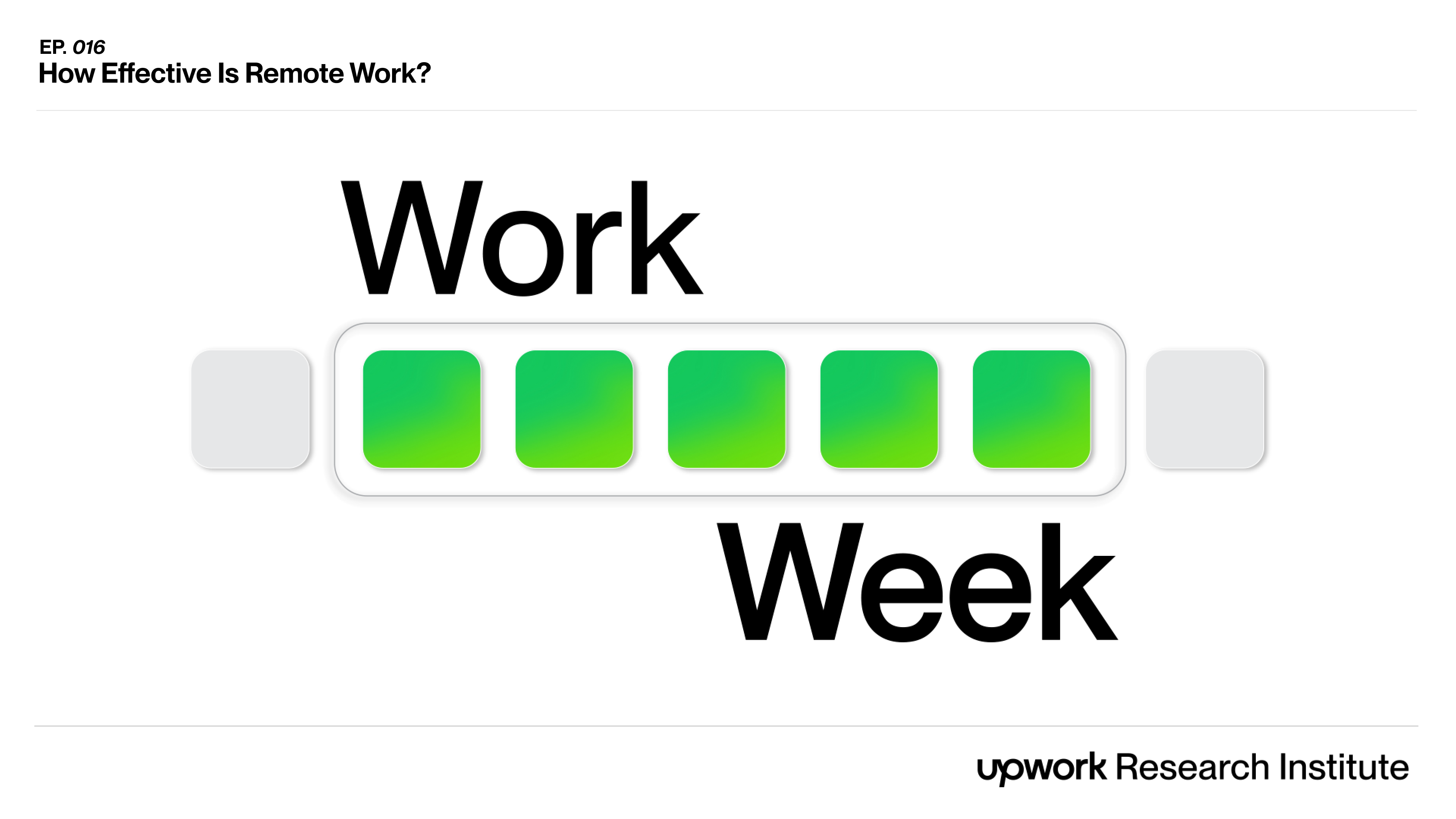
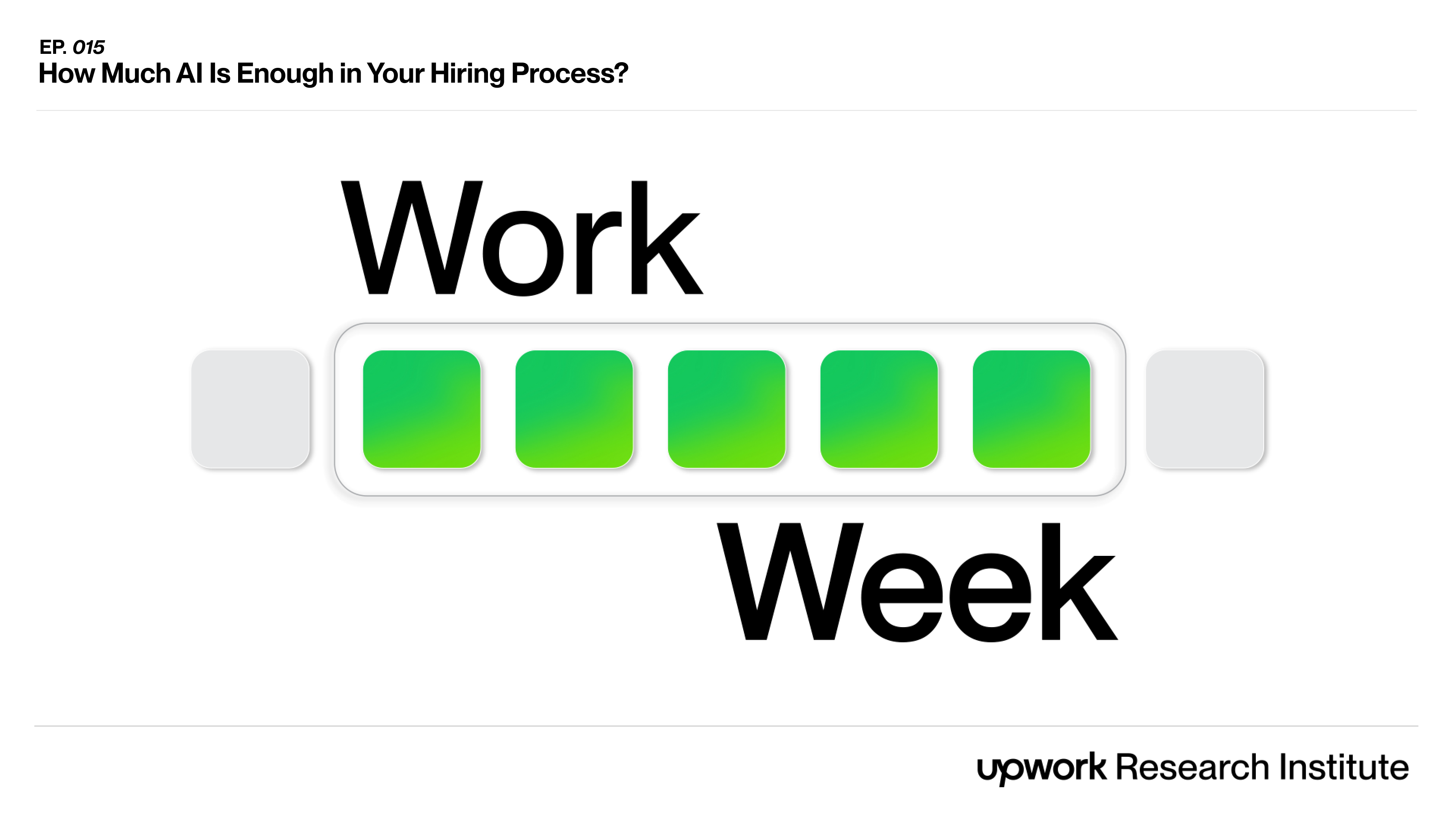

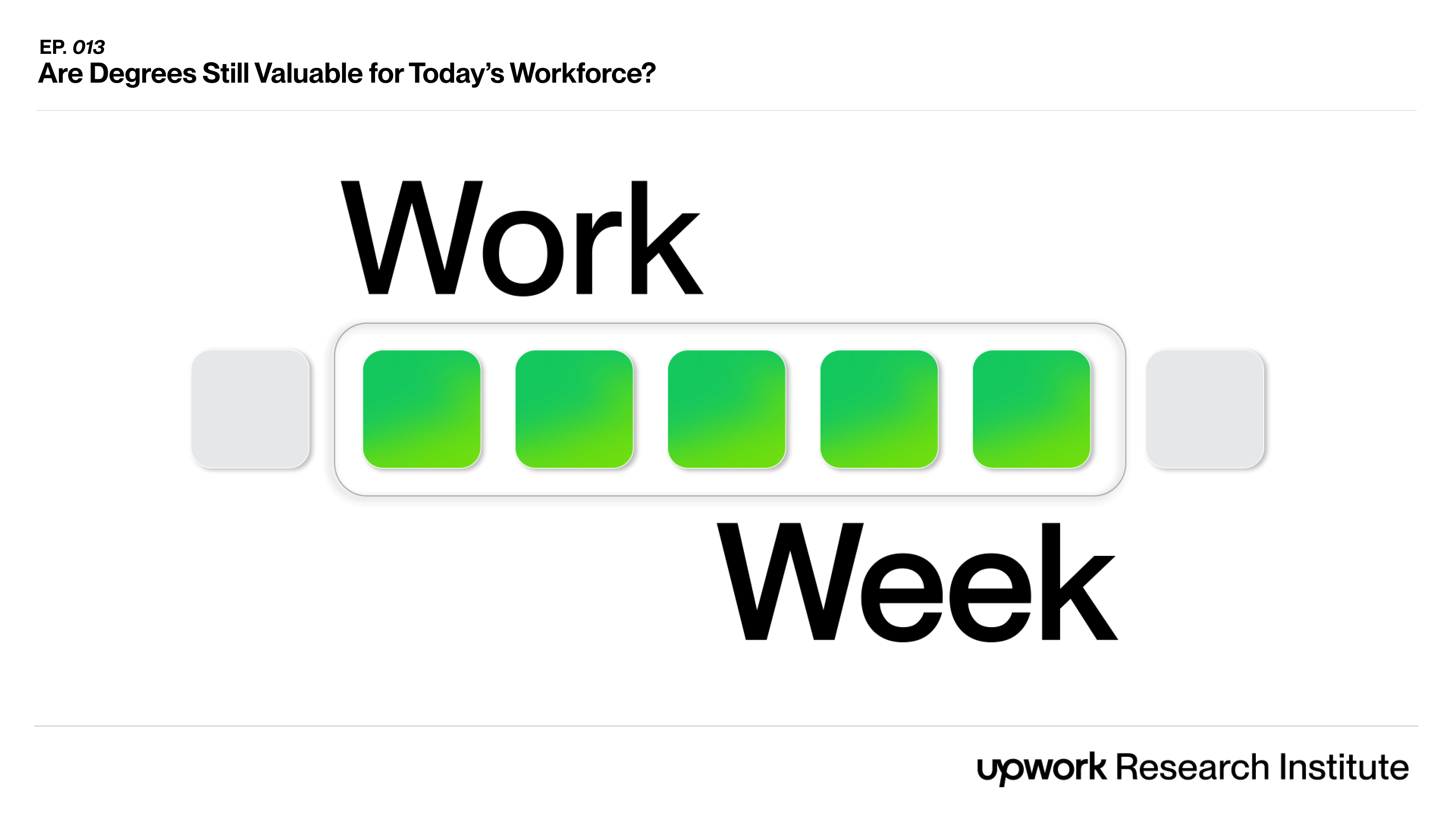
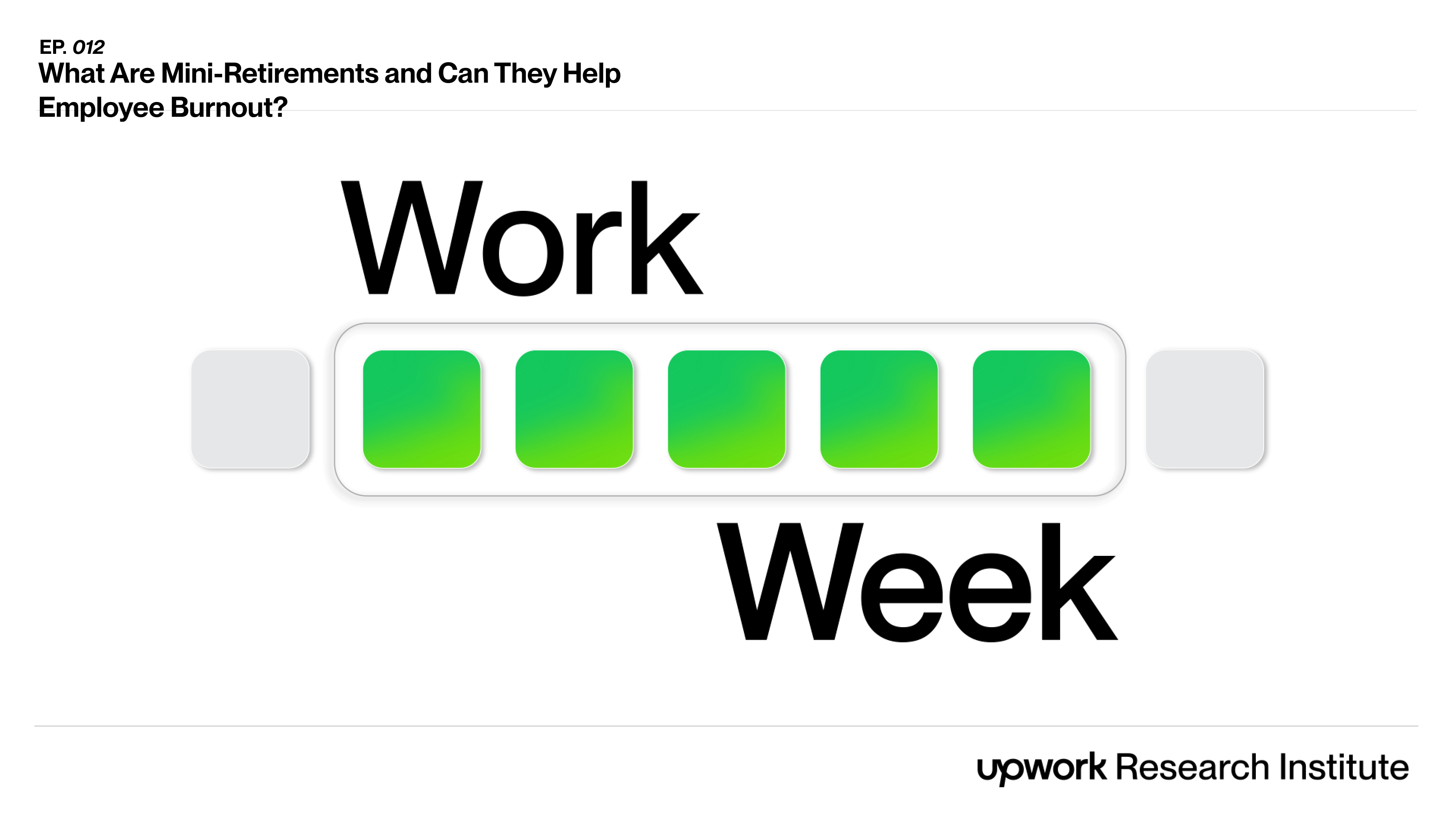
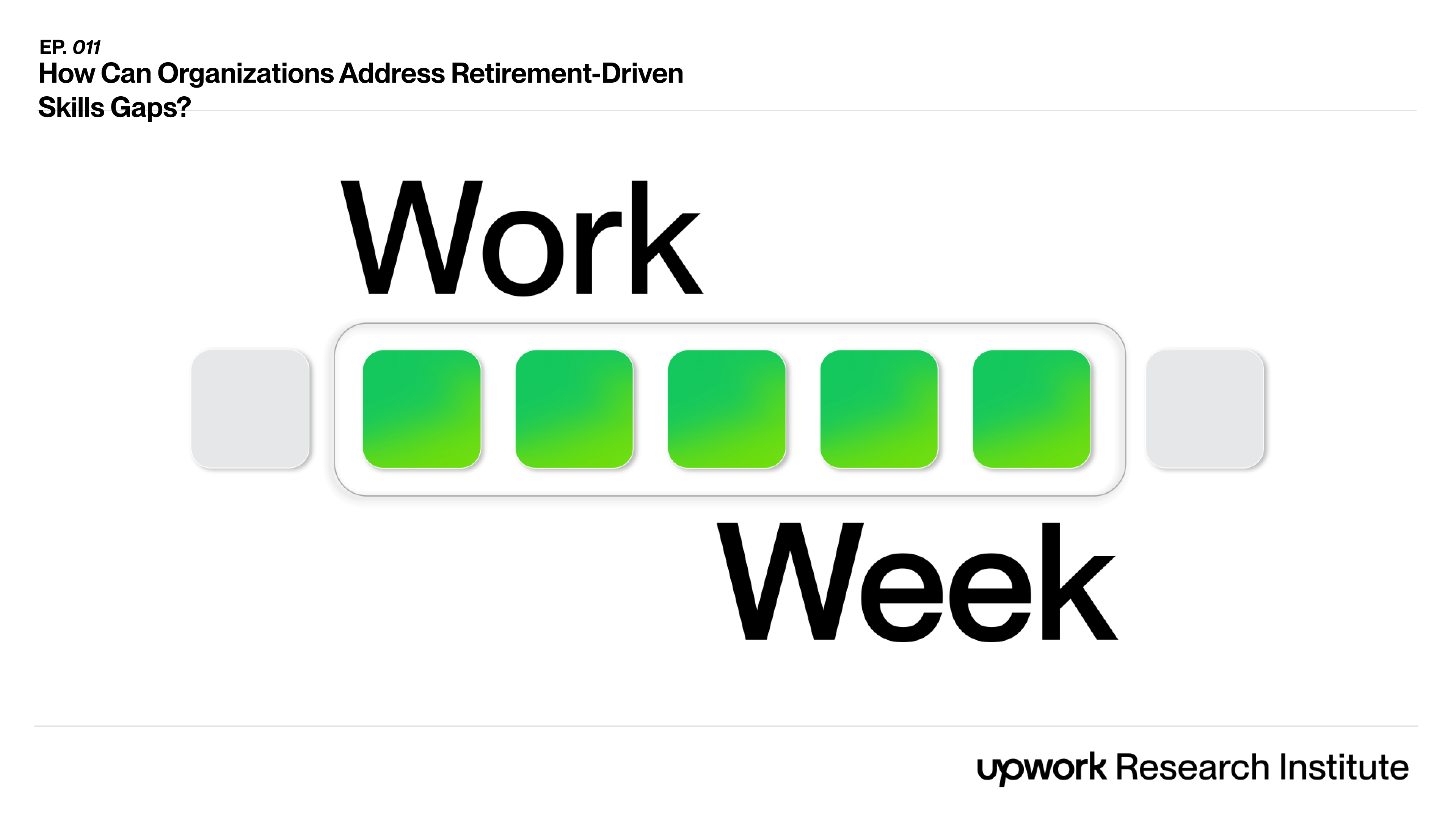
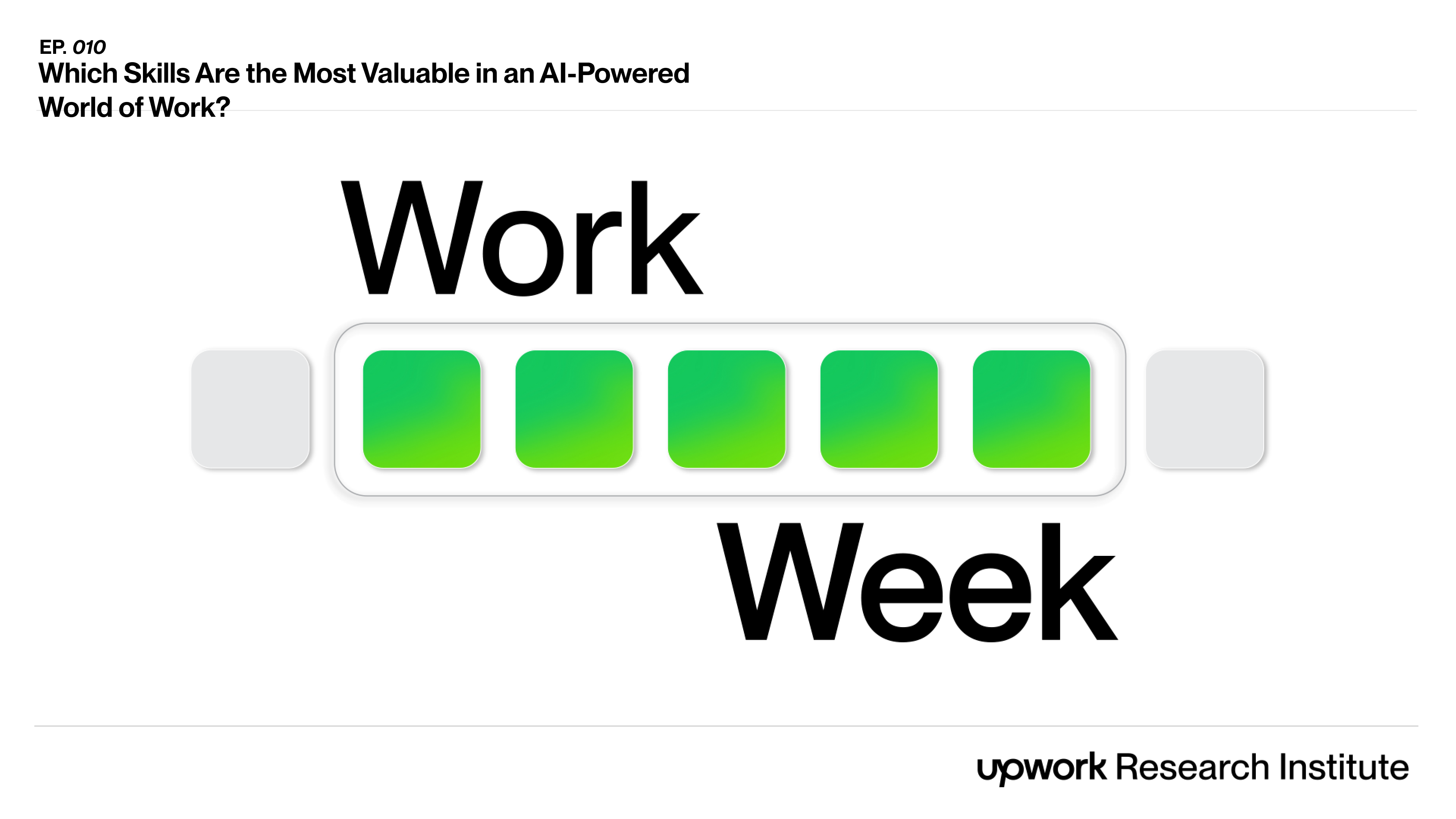
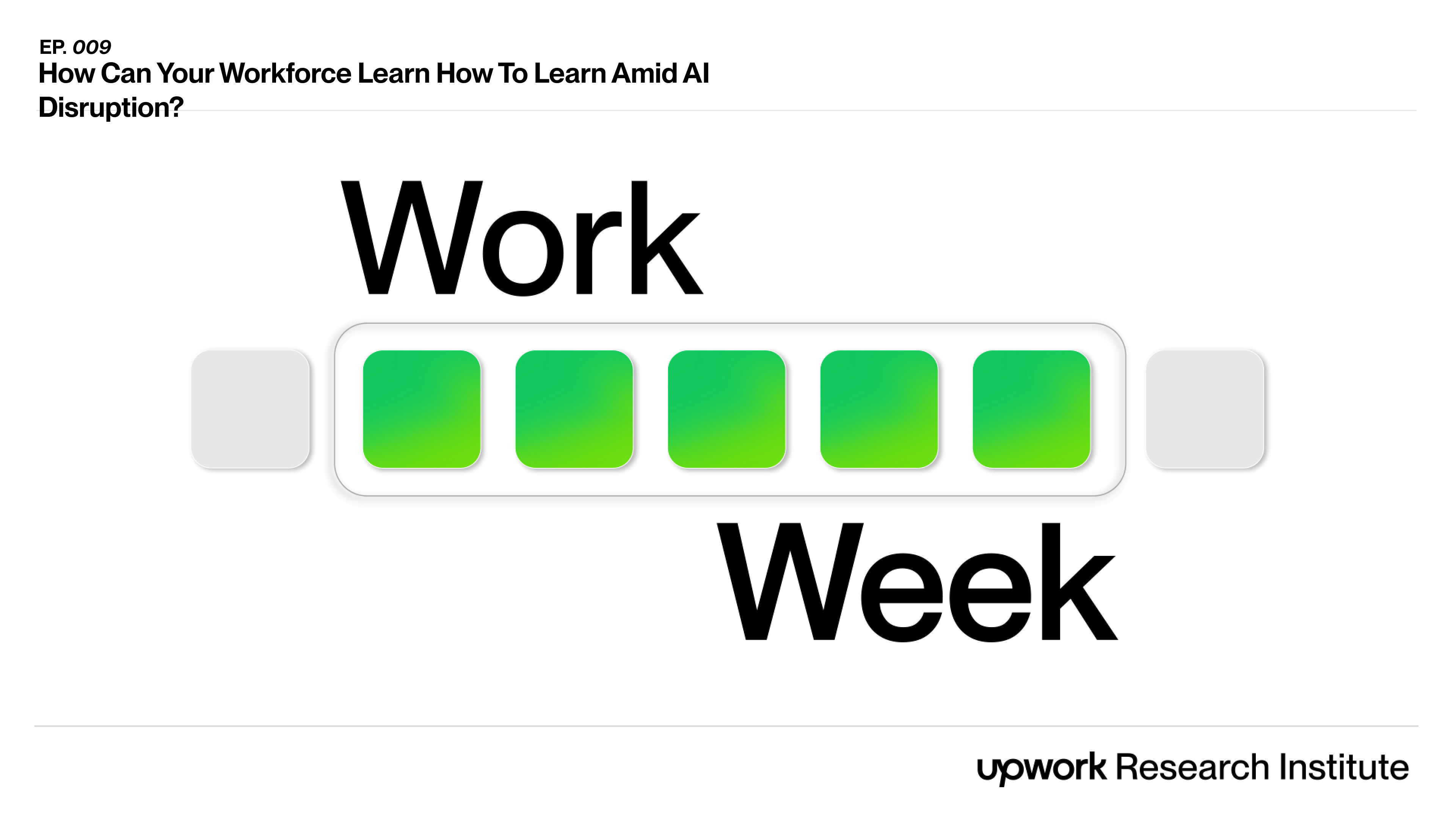
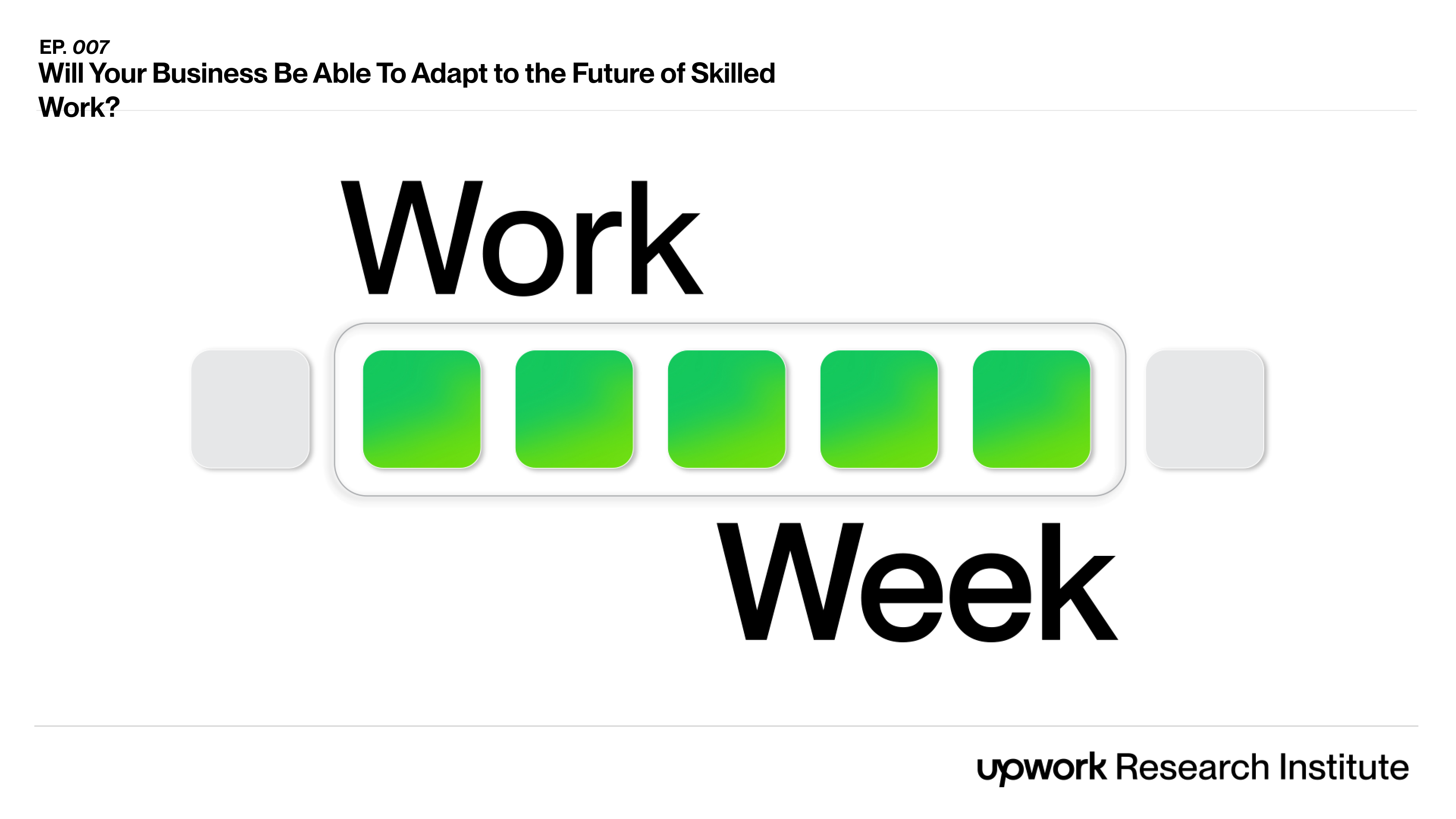
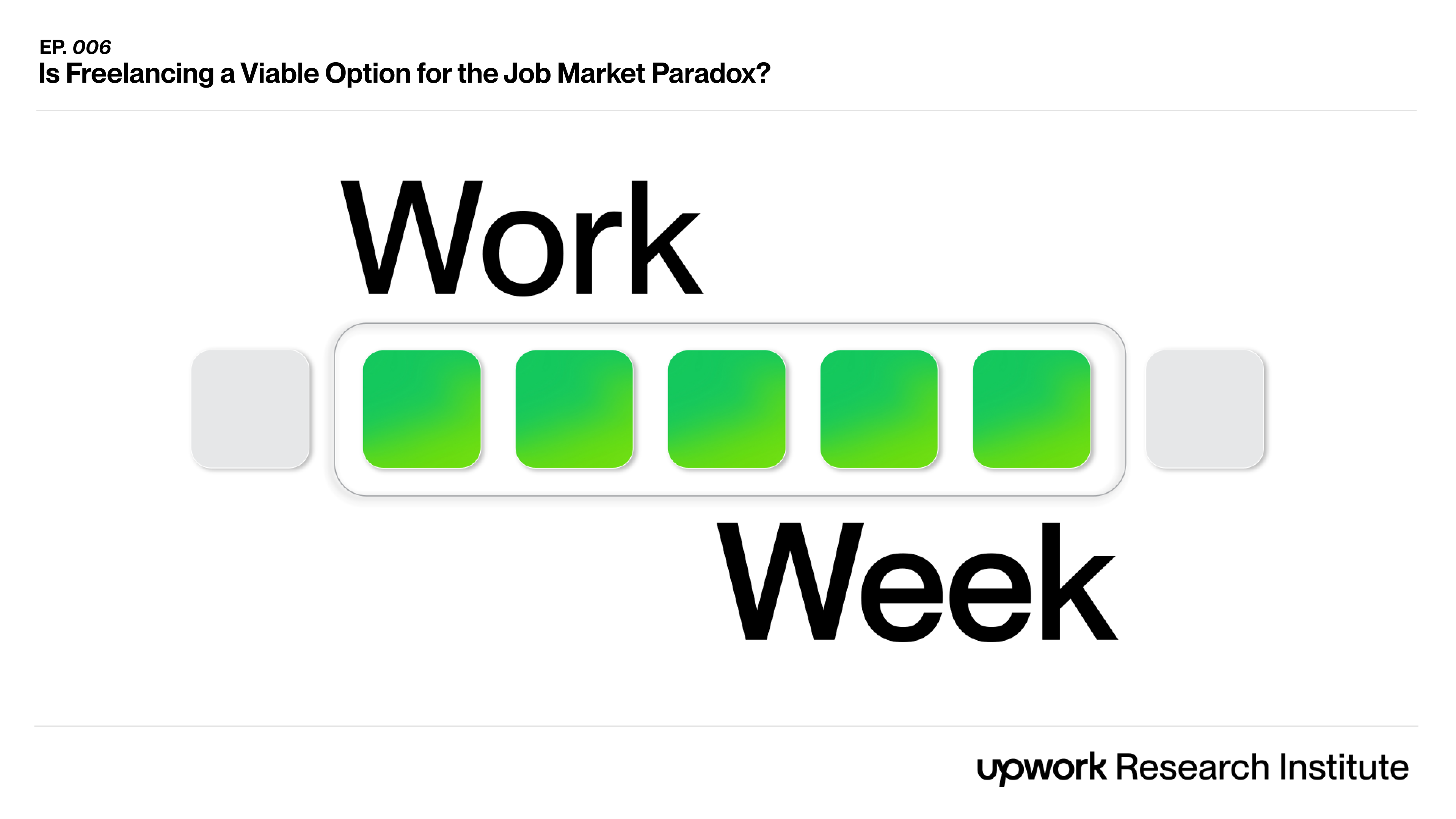
.png)
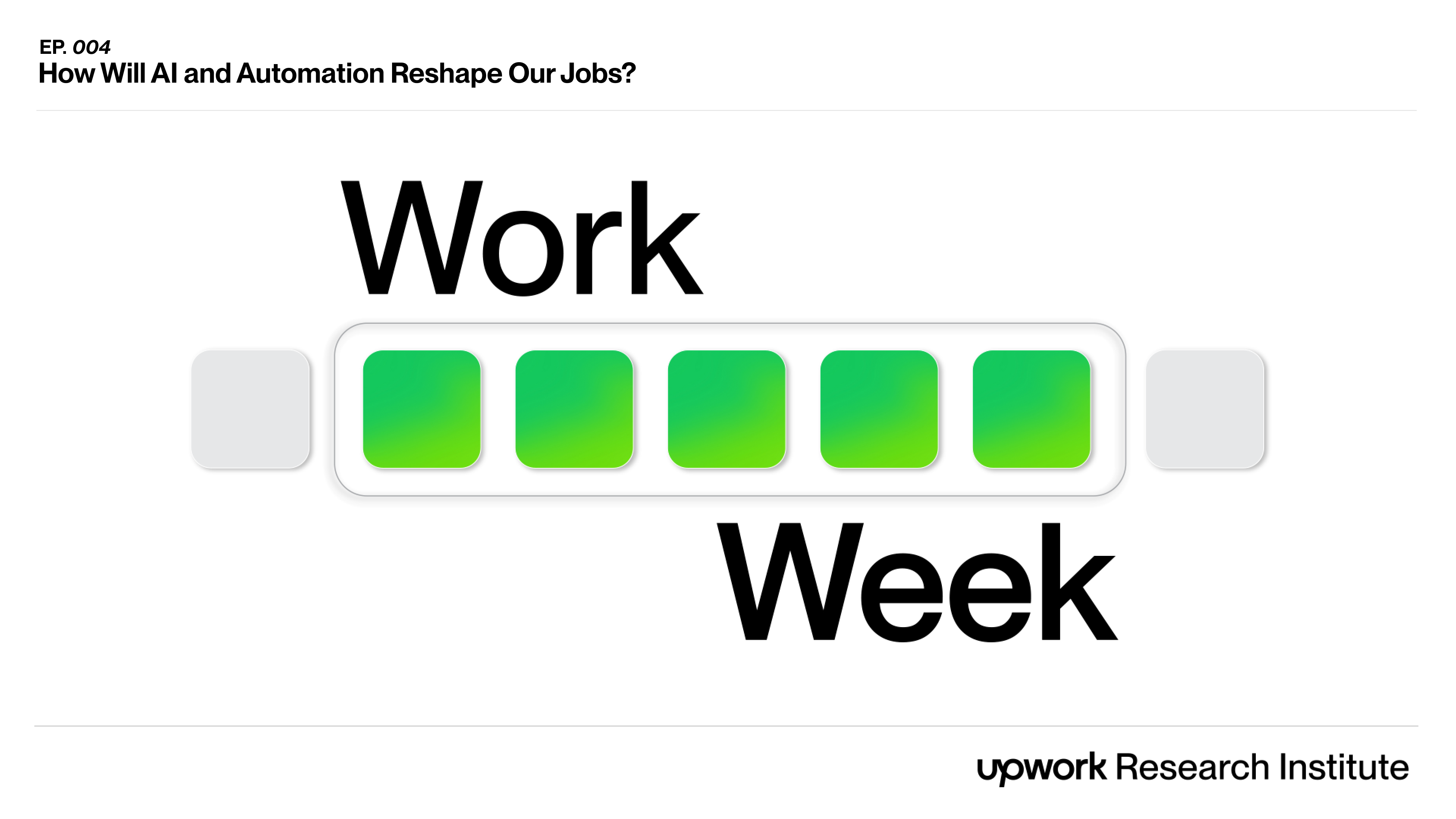

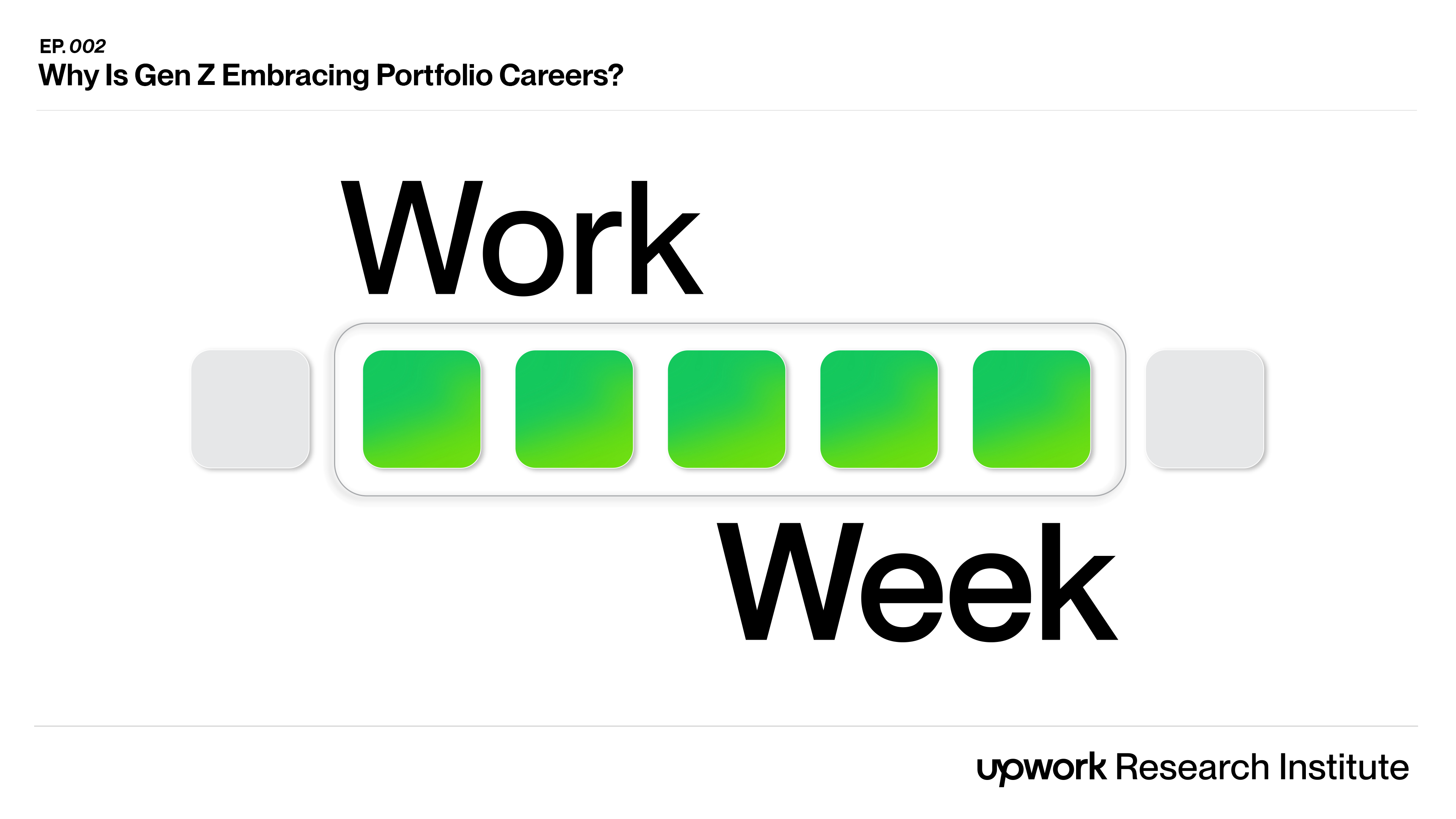
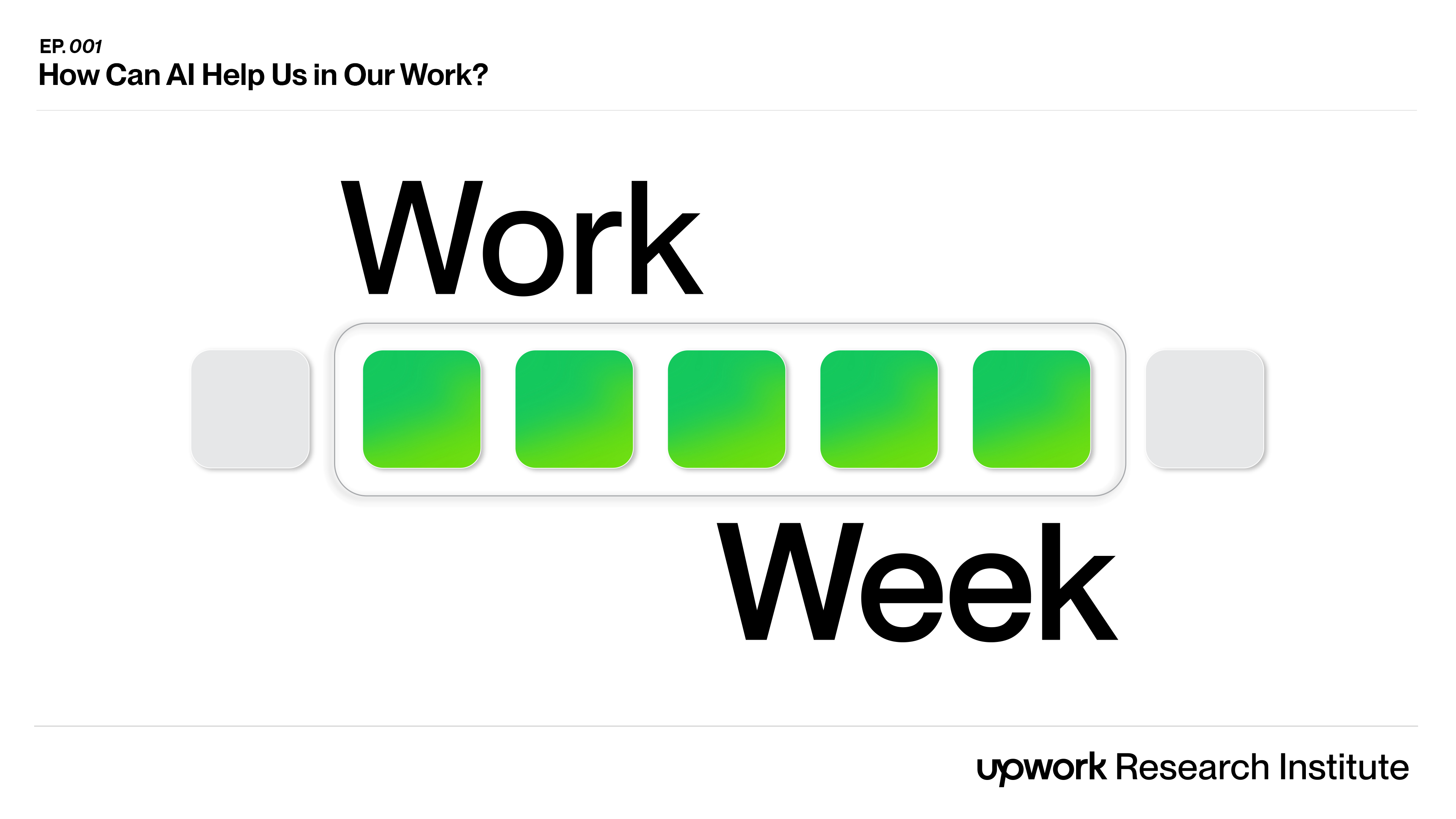
.jpg)